UK Teenage Pregnancy Unit a $100 million dud
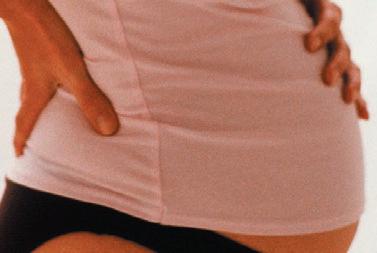

Campaign sees opposite effect as conceptions soar under contraceptive plan
A 40 million pound UK Government campaign to reduce teenage pregnancies has been branded a failure after areas specifically targeted for
improved contraception services and advice saw huge rises in underage conceptions. New figures show that teenage pregnancy rates rocketed in the three years following the establish-
ment of the Teenage Pregnancy Unit by Tony Blair in 1999. Some of the worst hit areas include places such as Lambeth in South London, which was designated as a target in 1999 when 361 girls

Diversity Matters: Pluralism is now the norm for our society Page 10
I Say, I Say: Cameron Diaz should stick to acting Page 10
- nine per cent of those under the age of 18 years - became pregnant. In spite of the efforts of the pregnancy unit, the number of teenage girls falling pregnant in Continued on page 2
Man of courage: Life of Dr Pat Cranley, remarkable GP Page 11
Priest stands by girl
Parishioners, Bishop, back Priest willing to be arrested
Year of the Eucharist
A British Catholic priest in the Diocese of Clifton, England, has been caught in a tense standoff with police after he vowed to go to jail rather than allow officers to arrest an African asylum seeker who is sheltering in his parish.
His Bishop told The Record in a telephone interview on Monday that not only parishioners but many in the wider community were supporting his stand.
Fr Richard McKay, the parish priest of St Nicholas of Tolentino Church in Easton, Bristol, barred police from entering his church earlier this month in order to detain Josette Ishimwe, a 23 year-old Rwandan woman.
Miss Ishimwe, who witnessed the brutal murder of her father and mother at the age of 13 during the civil war in Rwanda, is claiming asylum in Britain but has had her appeal rejected by the Home Office.
But Fr McKay - supported by parishioners, the wider community and his bishop, Bishop Declan Lang - said he would not give in, even at the cost of his own liberty.
"I am absolutely prepared to go to prison for this if I must," Fr McKay said.
Earlier this month authorities decided to hold a final judicial review into Miss Ishimwe’s case.
Into the Deep
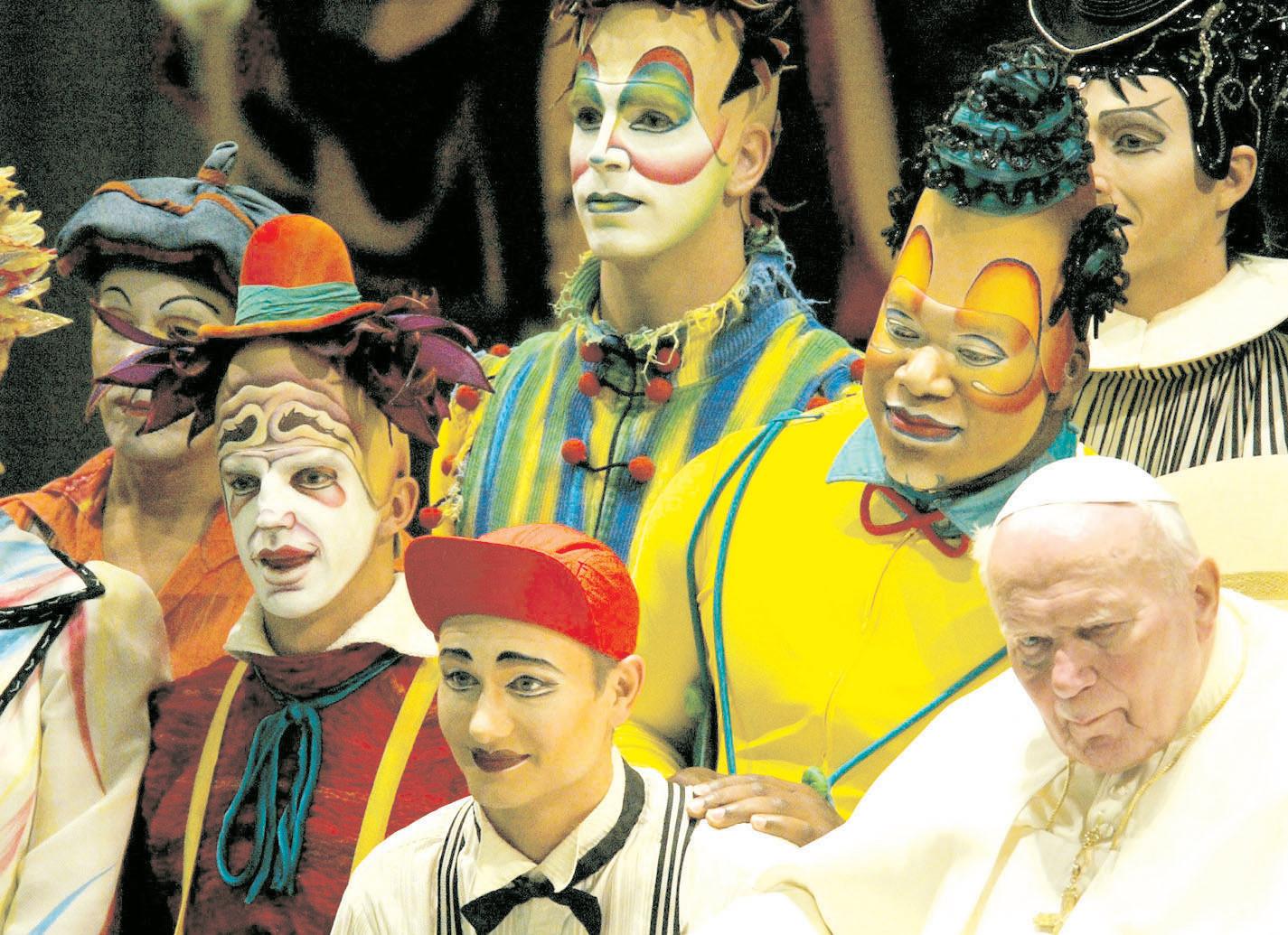
Bishop Lang told The Record the case is continuing.
“For her to experience healing she needs the stability and the help of this country,” Bishop Lang said. “She has the support of the
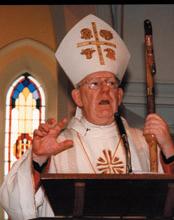
parish and many people in the community as well.”
Fr McKay believes Miss Ishimwe will commit suicide if she has to go back to Rwanda.
“She is a profoundly wounded
individual who has suffered terribly. There are not the facilities in Rwanda to look after her.
“There is nothing for her there.
“She cannot go back."
Continued on page 3
Church ‘in dire need’ of renewal: Cardinal Dulles
■
By Tracy Early
Cardinal Avery Dulles said in a lecture on November 10 that Catholics are entering the 200405 Year of the Eucharist with an awareness that "the Church is in dire need of renewal."
Although "holy in her head and in her apostolic heritage," the Church remains "sinful in her members and in constant need of being purified," he said.
The Cardinal said many Catholics are ignorant of Church teachings, and a few even reject the teachings.
"Some of the clergy are not exempt from grave and scandalous sins, as we have learned all too well in these recent years," he said. As a resource for renewal, he called for an emphasis on the Eucharist, and seeing in it the same marks used by the creed in describing the Church as one, holy, Catholic and apostolic.
Cardinal Dulles, a Jesuit theologian named to the College of Cardinals in Continued on page 4
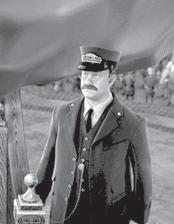
soon to be on the Web
NOVEMBER 18, 2004
● $1
THURSDAY
Perth, Western Australia
Western Australia’s Award-winning Catholic newspaper
WORLD. MOVIES All Aboard! A children’s movie for Christmas looks like it won’t be half bad Page 14
THE PARISH. THE NATION. THE
FEATURES
charts
for
diocese in troubling times Pages 7-9 INSIDE: I am with you always - Page 14 ● Aussies help Sudanese - Page 4 ● Give a Catholic book (and a little inspiration) for Christmas! - Page 16
Bishop Holohan
a course
a
INDEX World News Reviews Classifieds Editorial & Letters I Say, I Say - Pages 12 & 13 - Page 14 - Page 15 - Page 6 - Page 10
■ Catholic Herald, with The Record's Jamie O'Brien
Entertainers from Cirque du Soleil pose with Pope John Paul II following his general audience at the Vatican on November 10. The Pope focused on Psalm 62 during the audience, saying that “trust in the Lord is the source of eternity and of peace.” Cirque du Soleil is coming to Perth in 2005.
Photo: CNS
Lobby welcomes paper
Catholic Welfare wants debate on future of how families separate
The Catholic Church’s main social welfare lobby organisation in Australia welcomed the release of the Government’s discussion paper “A New Approach to the Family Law System: Implementation of Reforms” made public on November 10 by the Attorney-General, Mr Philip Ruddock and the Minister for Family and Community Services, Senator Kay Patterson.
Catholic Welfare Australia is one of three organisations providing services to families with the assistance of funding provided by the Department of Family and Community Services within the Family Relationships Services Program.
“We welcome the opportunity to contribute to the national debate around the future of the Family Law System in this country,” said CWA executive director Frank Quinlan.
“There are two strong themes that

seem to underpin this discussion paper that reflect the experience of our agencies. The first is that the breakdown of the family unit has ramifications far beyond legal issues and should not be treated as simply a legal problem.
Families need access to a whole range of support services. “The second is that family breakdown has an impact on the lives of not only the couple involved but also the children,
the grandparents and the extended family network, all of whom require support,” said Mr Quinlan.
“Catholic Welfare Australia has already drawn together some of its key providers of Family Relationship Services to explore the issues raised by the discussion paper and we look forward to making a submission to Government on issues of concern to separating families across Australia,” he concluded.
Linda issues appeal
■ By Jamie
O’Brien
Linda’s House of Hope is conducting an urgent fundraising appeal.
Funds raised are able to assist women who want to leave a life of working in prostitution.
Founder Linda Watson said $4000 is needed by Christmas to keep the doors of House of Hope open.
Funds are also desperately needed to keep the service open into the New Year.
Ms Watson said food vouchers from local business would also be greatly appreciated.
At present the residence is full.
Earlier this year, House of Hope was able to successfully provide services for a young woman to leave life of prostitution.
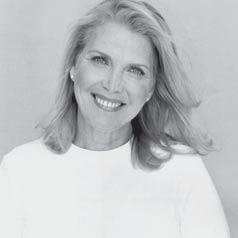 Linda Watson
Linda Watson
26-year-old Linda was also able to go to the US for an International Consultation for Women in Prostitution with Ms Watson.
Following this Linda has gone on to study in Europe.
Ms Watson said she is thankful to the public for helping make it possible for Linda to recover from her experiences.
Donations can be sent to PO Box Z5640 St Georges Tce, Perth 6831. Telephone: 9358 2544
Pregnancy unit turns out to be a $100m dud
Continued from page 1
the Lambeth area rose to 406 by 2002, a figure which represents one in 10 girls aged under 18 years. Nationally, the number of under 18s becoming pregnant soared by almost 1,000 in just 12 months, an increase of more than two percent on the previous year. In one school four 15-year-old girls were all pregnant by the same 16-year-old boy.
The figures, published on the unit's website, have led to calls for the Government to reverse its teenage pregnancy policies, which depend heavily on the easy availability of contraception and the
moming-after pill rather than promoting sexual abstinence. Critics say all the evidence indicates that the policies are encouraging sexual activity among teenagers and making problems of single teenage motherhood and abortion worse rather than solving them.
They say the Government must also share part of the blame for a 30 per cent increase in levels of sexually transmitted infections among 16 to 19-year-olds in the last five years.
"Nobody wants to say 'I told you so'," said Robert Whelan, deputy director of Civitas, an independ-
ent think tank. "But a number of people have been warning the Government since the start of the strategy that it was destined to fail because of its almost complete reliance on the twin pillars of more explicit sex education and easy access to contraception for teenagers.
"These policies have been pursued for 30 years to no good effect. All attempts to incorporate an element of abstinence education have been treated with contempt by the staff of the Teenage Pregnancy Unit and they are now reaping the whirlwind of their short-sighted
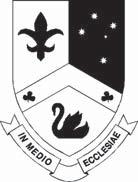
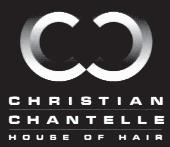
The Record
587
Journalists
Jamie O'Brien
Bronwen Clune clune@therecord.com.au
Mark Reidy reidyrec@iinet.net.au

folly." The Prime Minister set up the unit to halve the rate of conceptions among girls under the age of 18, the highest in Europe, by 2010. But the latest figures show that the recorded number of conceptions went up to 41,868 in 2002 from 40,966 in 2001. The actual number of conceptions is far higher because the unit has vigorously promoted the use of the moming-after pill, a powerful drug which induces very early abortions in pregnant women. Six of the 10 worst areas in the country saw dramatic increases in teenage pregnancies while the
rates dropped slightly in the four other areas.
The figures forced Children’s Minister Margaret Hodge to concede that the Government’s scheme had not produced its intended effects. “We do not appear to have seen a blip and that did worry me,” she said. “We don’t know why that happened but we have done a lot of analysis and I do believe we are on the right track. In some ways we are making progress. But we have a long, long way to go. We are now focusing on those hot-spot areas with real problems.”
- Catholic Herald



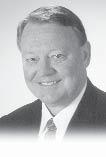
® A division of Interworld Travel Pty Ltd Lic No.9TA796 Est 1981 200 ST.GEORGE’S TERRACE,PERTH,WA 6000 TEL 61+8+9322 2914 FAX 61+8+9322 2915 email:admin@flightworld.com.au www.flightworld.com.au Reaffirm your faith Michael Deering Visit a holy place or shrine and experience the enrichment of spirituality. Book with WA’s most experienced pilgrimage travel agency. AGENT FOR HARVEST PILGRIMAGES. Reaffirm your faith Enquire about our Cashback Offer* Year of the Eucharist Holy Hour Exposition, Vespers & Benediction Sunday evenings 6:30pm – 7:30pm St Joseph’s Priory Church Treasure Road Queens Park Holy Hour Norbertine Canons A LIFE OF PRAYER ... are you called to the Benedictine life of divine praise and eucharistic prayer for the Church? Contact the: Rev Mother Cyril, OSB, Tyburn Priory, 325 Garfield Road, Riverstone, NSW 2765 www.tyburnconvent.org.uk TYBURN NUNS Page 2 18 November 2004, The Record 320 Murray Street, Perth WA 6000 PH: 9321 4224 International Hair Styling Present this advertisement to receive a 10% discount off any service provided.
How to contact The Record Letters to the Editor cathrec@iinet.net.au PO Box 75 Leederville, WA 6902
Kylie Waddell administration@therecord.com.au PO Box 75 Leederville, WA 6902
Eugen Mattes, Carole McMillen advertising@therecord.com.au PO Box
Leederville,
Subscriptions
Advertising
75
WA 6902
Newcastle St, Leederville
Tel: (08)
Fax: (08)
WA 6902
9227 7080
9227 7087
jamieob@therecord.com.au
NFP head wants to reveal ‘best-kept secret’
Rockhampton wife and mother Noelle Melrose has taken up the position of President of the Australian Council for Natural Family Planning (ACNFP) for the next two years.
Mrs Melrose, a registered nurse and co-ordinator of Natural Family Planning in the Rockhampton diocese, was elected to the position at the ACNFP bi-annual conference
held in Sydney last month. “I am enthusiastic about working in new ways to tell the Good News of NFP; it’s the best kept secret in the Church and in the broader community. I will continue to enhance our education, first to our own teachers, and particularly at a pastoral level.
“NFP is a way of life, and we - ourselves, our spouses and our families - can be prophets of hope, evangelising through our lifestyle.
“Our NFP teachers are dedicated, highly skilled people, and we must use the gifts of everyone to tell the NFP story. I also believe there is exciting work to be done in developing a greater understanding of the theology of NFP.
“As a society we have previously prided ourselves on our ‘control of fertility’.
“However with the growing recognition of many disadvantages associated with a low fertility rate, high abortion rate and an aging population it is a prime time to educate people to live in harmony with their fertility by using Natural Family Planning. It has no side effects as artificial methods of family planning do. There is no greater ‘environment’ than this sacred garment - our body and our gift of fertility.
“We must not hide our gift - but rather get excited that we have a highly effective, scientifically based natural method of planning
a family, but also a way of life that allows us to live in harmony with ourselves and those we love. Using NFP challenges us to increase our communication skills and so can enhance our quality of life and relationship.”
Past President, Mr Tom O’Donnell of the Archdiocese of Perth, handed over the reins after two years in the role. During Mr O’Donnell’s presidency, a new website was developed which makes information about NFP more readily available.
Over 40 teachers of Natural Family Planning from right across Australia attended the Conference at which Mrs Melrose was elected.
During the weekend, teachers were able to meet, share commonly-faced challenges and the solutions that have worked in various areas.
The different needs of rural and city teachers were among issues discussed.
The need to promote and educate the community about the natural, healthy benefits of Natural Family Planning was widely discussed, with the internet being identified as a new medium which provided many opportunities to assist with this.
Those seeking information about Natural Family Planning can phone toll free 1800 114 010.
Continued from page 1
Miss Ishimwe arrived in the parish two years ago and in April this year her appeal for asylum was declined.
Fr McKay said that this rejection sent her into a deep depression and she became suicidal.
She was admitted to hospital, but was soon discharged because of her status as an illegal immigrant.
"When she returned to the parish she was very unwell, and so we had to look after her," said Fr McKay.
His parishioners helped him by taking turns to look after Miss Ishimwe when he was tied up with other duties.
Fr McKay said that his duty as a Christian was to defend Miss Ishimwe.
"The law of God is very clear.
“It is balanced in favour of the weak, vulnerable and particularly
The 2004 Mandorla Award for Contemporary Religious Art 30 selected works
New Norcia Museum & Art Gallery
Saturday 13 November
Sunday 28 November
Theme: “whatsoever you do for the least of them you do for me”
Come & Be Inspired Ph. 9654 8056
VISITING SYDNEY

the stranger in our midst - and that is exactly what she is. “For me, this is not disobedience to my God.
“It may involve civil disobedience, but I feel that it is needed."
Fr McKay said Miss Ishimwe is relieved that the threat of deportation has been temporarily taken away, and at last there seems to be some progress.
in brief Christmas is back
The Indian government has ordered restoration of Christmas holidays at public schools. The Human Resource Development Ministry said it facilitated the
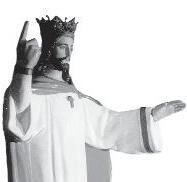
He claims, however, that government representatives have repeatedly lied about the asylum process in order to impede Miss Ishimwe's appeal.
"There is something very sick and very wrong here," he said.
"I am saddened that the Government is allowing itself to be dictated to by some of the worst aspects of the media."
Bishop Lang offered his support to the priest and applauded the parish for helping Miss Ishimwe.
The bishop has met Josette Ishimwe and knows something of the traumatic experiences she has had in her life, including seeing the murder of her parents and other family members.
"This is an expression of Christian faith and passion for justice," said a spokesman for the Diocese of Clifton.
"The Bishop appeals on her behalf that Josette be given asylum
move in order to allow minorityreligion communities to celebrate Christmas. More than 80 per cent of India’s 1 billion citizens are Hindu; Christians comprise two percent.
However, the Christmas holidays had been part of the public school system for more than a century. The ministry announce-
The Solemnity of Christ the King
The Catechetical Asssociation SACRI warmly invite you to the Annual Celebration of Christ the King on Sunday November 21 at 2.30pm at the Shrine of the Virgin of the Revelation 36 Chittering Rd Bullsbrook.
Contact: Phone:
661
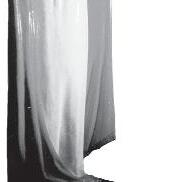

Principal Celebrant will be Bishop Quinn, retired Bishop of Bunbury. Eucharistic procession, Holy Mass, consecration to Jesus and Mary 2pm, Reconciliation
in the United Kingdom so that she can find healing and rebuild her life with dignity.
“The Bishop appeals on the grounds of humanity and for a justice that enhances the lives of indviduals rather than treated them indifferently.”
Louise Zanré of the Jesuit Refugee Service applauded Fr McKay.
"We are heartened to see that he, along with his parish and his Bishop, is supporting Josette," she said.
"I think you will find within Church teaching that law should be upheld, but we have a duty to uphold a higher law.
“Obviously, he has a made a decision to support Josette on the basis that she needs his help and her treatment has been unjust.
“The asylum process in this country is so inherently unjust that we have to take extreme measures.
ment earlier this year overrules last year’s controversial decision by the federal government to keep schools open for Christmas.
Last year the federal government, then led by the pro-Hindu Bharatiya Janata Party, postponed winter holidays until early January.
The Catholic Bishops’
"We hope that this incident will cause people to reflect on the issue. If asylum seekers were given the right to work that would enable them to live with a little more dignity and self-respect."
Jean Corston, the local Labour MP for the constituency which encompasses St Nicholas's, said that she did not know the details of the case, but did not object to Fr McKay's stance.
"I believe that churches have traditionally been places of sanctuary," she said.
"He is trying to uphold something of importance, and I could not stand in the way of that."
A Home Office spokesman refused to comment on the particular case, but confirmed that if an asylum seeker's appeal was unsuccessful, then that individual would be repatriated.
- Catholic Herald/Jamie O’Brien
Conference of India said that decision was “nothing but an abrasive attempt to coerce certain ideology and practice on the people” and reminded the government that “a democratically elected government has a duty to uphold the interest of all sections of society.”
- CNS
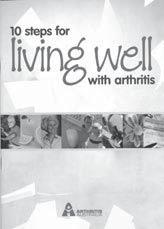
18 November 2004, The Record Page 3
parishioner comforts
Why not stay at STORMANSTON HOUSE 27 McLaren Street, North Sydney Restful & secure accommodation operated by the Sisters of Mercy, North Sydney. • Situated in the heart of North Sydney and short distance to the city • Rooms available with ensuite facility • Continental breakfast, tea/coffee making facilities & television • Separate lounge/dining room, kitchen & laundry • Private off-street parking
A
Miss Ishimwe. Priest, parishioners, Bishop, stand by Rwandan girl
0418 650
or email: nsstorm@tpg.com.au
Aussie help reaches Sudanese
Sudan: Your help reaches the children
The Church in Sudan has announced a massive expansion of its food and schools program for poverty-stricken youngsters. Hungry children in and around Khartoum will soon receive breakfast under the Church’s ‘Save the Saveable’ program, which has received a massive cash injection from the Catholic charity Aid to the Church in Need.
The news comes after ACN’s Australian section rallied to the Sudanese Church, following revelations that the Khartoum diocese had run up debts of nearly $1.2 million to try to keep open the Save the Saveable‚ schools and feeding programs.
A series of articles on the situation facing non-Muslims and the Church in Sudan from ACN’s John Pontifex appeared in The Record in April and May this year.
Khartoum’s Cardinal Gabriel Zubeir Wako was forced to slash the number of children at ‘Save the Saveable’ to barely 35,000 -almost half the original figure.
Now, a massive response to the charity’s 2004 Sudan Appeal means ‘Save the Saveable’ organisers are beginning to revitalise the scheme to provide education for youngsters all across the vast Khartoum diocese, reaching as far south as the town of Kosti, 200 kilometres from the capital.
Bishop Daniel Adwok, Cardinal
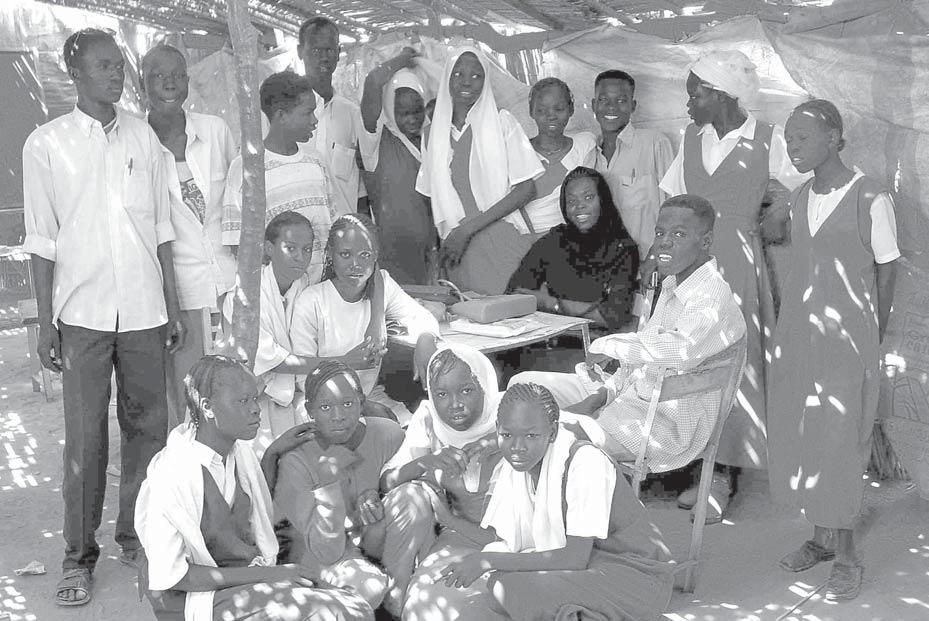
Zubeir’s assistant as Auxiliary Bishop of Khartoum, has announced the first fruits of a $100,000 aid package from ACN offices worldwide.
In a letter to Aid to the Church in Need, the Bishop said that the “immediate impact”of the grant will be a considerable increase in the number of children on the school roll.
The aim will be to up the
school register to nearer 70,000, the number Save the Saveable‚ reached at its peak in 2000, when the cutbacks began. Bishop Adwok also outlined plans to extend the school day at Save the Saveable‚ past noon.
Each day, the children arrive at 8am when, thanks to the grant, breakfast will soon be provided again for those in the kindergartens, pre-primary and primary sec-
tions. The feeding programs were scrapped a few years ago because of the funds shortage.
Bishop Daniel said that the feeding programs are essential: “For some children, the breakfast we provide could be their only decent meal of the day. “Save the Saveable‚ will keep the children living near the centres of our programmes off the streets.”
He added: “The program will
stop them from being vagrants in nearby towns where their mothers leave every morning in search of work to earn something so they can look after their children.
Bishop Adwok expressed his thanks to the supporters of ‘Save the Saveable.’
He wrote: “On behalf of all the children beneficiaries of this offering, I express my deep gratitude for your solidarity with us and our people.”
His letter follows praise from Cardinal Zubeir who earlier this month dispatched a message of thanks to ACN supporters: “We appreciate and admire your spirit of support very much. It has, in a way, boosted us, as we struggle to give education to the disadvantaged children.”
Describing ‘Save the Saveable‚ as the project “dearest to my heart,” Cardinal Zubeir has insisted on the rights of Khartoum Christians to a school system of their own in preference to the very costly Muslim equivalent run by the Sudan Government - institutions widely dismissed for indoctrinating children with fundamentalist Islam. Aid to the Church in Need project organisers hope to provide more aid for ’Save the Saveable,’ depending on the continued flow of donations.
For more information or to make a donation, contact Aid to the Church in Need, PO Box 6245 Blacktown DC NSW 2148. Tel: 02 9679-1929 or visit: www. aidtochurch.org
Vatican approves trial of US deacons’ guidelines
Norms will govern preparation and ministry
■ By Jerry Filteau
The US bishops learned on November 16 that the Vatican has given its approval to the "National Directory for the Formation, Ministry and Life of Permanent Deacons in the United States" that the bishops approved in 2003. Bishop Wilton Gregory, president
of the US Conference of Catholic Bishops, announced the Vatican action on the second day of the USCCB autumn meeting in Washington.
He said the Vatican decree was granted "ad experimentum" (on a trial basis) for five years and will take effect in August 2005.
The new diaconate directory will establish, for the first time, comprehensive national norms for preparing for and living the permanent diaconate.
It will replace national guidelines, in effect since 1984, that did not have the force of
norms. The Second Vatican Council called for a revival of the diaconate as an ordained ministry in its own right. Before that, for centuries the church had ceased to ordain deacons except as a final step before priesthood. Since the Catholic Church restored the permanent diaconate in 1967, the US church has been a leader in developing that ministry. It now has about 15,000 permanent deacons, about half the total worldwide.
The new directory sets out the requirements for deacons’ human, spiritual, academic and pastoral formation. It also spells
out, for the first time, norms for the "aspirant path" - the procedures and formation and discernment process to be followed before an applicant is accepted into a formation program as a candidate for the permanent diaconate.
Deacons, who together with priests and bishops form the Church's ordained ministers, assist at the liturgy, preach on the Scriptures and do charitable works in the name of the church. Most US permanent deacons are married and many have fulltime jobs in other fields. - CNS
Catholics 'know Church is in dire need of renewal'
Continued from page 1 2001, made his comments in delivering the annual autumn lecture of his McGinley professorship at Jesuit-run Fordham University in New York.
Titling the lecture "A Eucharistic Church: The Vision of John Paul II," the Cardinal noted the theme of the Pope's 2003 encyclical, "Ecclesia de Eucharistia," on the Church and the Eucharist.
He also recalled that the Year of the Eucharist, announced by the Pope last spring, began on October 17 and is scheduled to conclude with a Synod of Bishops dealing with the Eucharist in October of next year.
Cardinal Dulles said he was focusing on the Pope's "eucharistic ecclesiology," but would go beyond the pontiff's treatment to deal with all four marks of the Church.
And though unity is listed first in
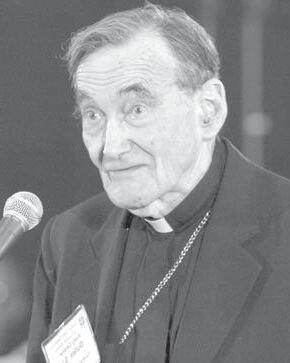
the creed, the Cardinal began his discussion with holiness because without it "all the other attributes would be valueless."
The Eucharist is "quintessentially holy" because "Christ Himself is substantially present in it" and in it
performs "his supreme redemptive act," Cardinal Dulles said.
"To be made holy by the Eucharist," he said, worshippers must go beyond mere physical presence at Mass and "join in the Church's self-offering, entering in spirit into Christ's own redemptive work."
Then, as they come closer to Christ in the Eucharist, they draw nearer to each other, and better manifest the Church's unity, he said.
The Cardinal said that while the Church needs renewal in holiness it is today "likewise feeble in her unity."
"She suffers from tensions among national and ethnic groups and from ideological conflicts between different factions," he said.
He said that in the Eucharist worshippers became like the many grains of wheat united in one loaf
of bread or the many grapes that make the wine of the one chalice.
Cardinal Dulles said, however, that the Eucharist could not function as a "sacrament of unity" unless "a measure of unity" already exists among participants. "If anyone were to receive this sacrament of unity while intending to remain apart from the body and its head, in a situation of heresy or schism, the meaning of the action would be contradicted by the contrary disposition," he said.
It would be wrong, he said, if anyone were to say, "I don't accept your pastors and doctrines, but I want to partake of your sacraments."
Regarding Catholicity, Cardinal Dulles said the Eucharist must be celebrated "in union with the local bishop, the Pope and the Catholic Church throughout the world."
He said some Catholics contend
that the Church was not constituted hierarchically from above but by the action of believers from below, and that every local community has the right and power to designate one of its members as presider at Mass.
But the Eucharistic prayers of the Roman Missal, he said, show that "every legitimate Eucharist is celebrated in union with the whole body of bishops and the Pope, for otherwise it would be deficient in Catholicity."
In conclusion, Cardinal Dulles said the "prevalent secular and democratic culture" tricked people into thinking they did not need the kind of connections represented by that fourth mark of the Church.
"But the Eucharist reminds us that grace and salvation come from on high, and that they are channeled through Christ and the apostles," he said.
Page 4 18 November 2004, The Record
Cardinal Dulles
When Australians argue about education funding they might like to remember that sometimes such issues are relative. Here, students pose for a photograph at a Save the Saveable School at Mayo Displacement Camp in south Khartoum.
Pollie priest speaks on St Thomas More
■ By Jamie O’Brien
Members of the West Australian Parliament had the opportunity to listen to a talk about St Thomas More, the patron saint for parliamentarians and statesmen by a former federal Justice Minister-turned-priest on Tuesday November 9.
Tasmanian priest Fr Michael Tate, a Senator for 15 years and Minister for Justice during the Hawke and Keating governments for six years, was also an ambassador to the Netherlands and the Holy See for three years.
Dr Pina Ford, co-ordinator of the archdiocesan Catechist Service, also spoke on More.
Thomas More knew all about the ordinary pressures of political life, Fr Tate said. “He complained of the long hours which disrupted family life,” he said. Dr Ford spoke
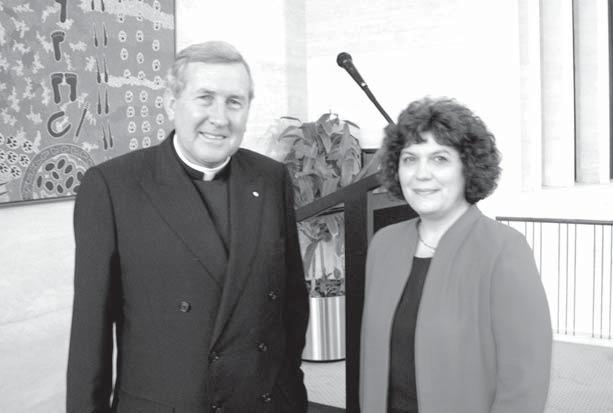
about Utopia, the work penned by Thomas More in the early 1500’s. “Utopia is a fantasy, satire and play,
but it is also a vision of how life might be improved for ordinary people through responsible gov-
ernment,” Dr Ford said. “It exhorts us not to become accustomed to cruelty, injustice and oppression and to imagine and plan better futures.”
Dr Ford completed a doctorate on the natural law context of Thomas More’s Utopia at UWA in 2000. Fr Tate studied theology at Oxford and was ordained a priest in Tasmania in 2000.
He also lectures in Law at the University of Tasmania.
“Thomas More uniquely experienced the ordinary pressure of political life,” he said, noting that anyone who has depended on the political patronage of a premier or factional leader would know how this feels.
Barbara Scott, the State member for the South-Metropolitan region said the talk was an exciting initiative and public recognition of Thomas More that politicians
might want to align themselves with. “I couldn’t think of a better philosophy than that of Thomas More,” said Mrs Scott.
Fr Tate believes parliamentarians owe Sir Thomas More their liberty to speak freely in parliament. In 1523, More made a speech that led to the freedoms and privileges that parliaments now enjoy around the world,” said Dr Ford.
“He argued against those who spoke freely being prosecuted saying that without the free exchange of ideas the king could not obtain right and substantial counsel.”
“As speaker of the House of Commons, he asserted this right against the king and it became the basis for parliamentary privilege,” said Fr Tate. Thomas More was beheaded basically because he would not agree to Henry VIII assuming absolute despotic power.
Daphne and Charles toast of Castledare at 50 years
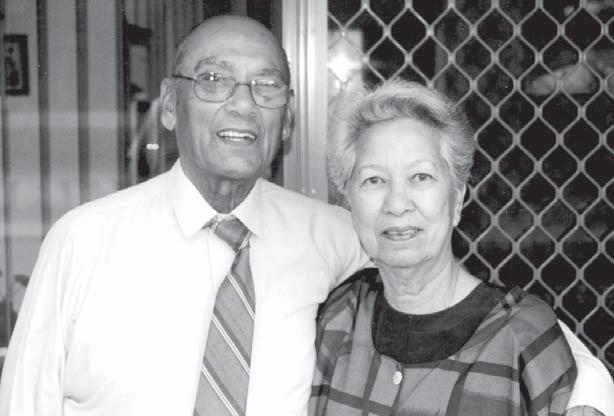 ■ By Glynnis Grainger
■ By Glynnis Grainger
Daphne and Charles Stephenson are the toast of Castledare Retirement Village, Wilson, where they celebrated their Golden wedding anniversary on Saturday, November 6.
A special Mass, concelebrated by Fr John O’Reilly and Mgr James Nestor, was attended by family and friends at 5pm in the Wilson parish church at the Village, where the priests and the Stephensons live. Retired priest, Fr John Leummen, from Riverton, was a special guest. There they renewed their marriage vows and thanked God for all the blessings He had bestowed upon them in their 50 years of marriage.
A celebratory curry and rice dinner without alcohol was held for 100 guests in the Village Community Centre afterwards.
The couple, originally from Burma, now known as Myanmar, met in Rangoon when Daphne was 18 and Charles, then 23, was friendly with her brother, Ted Jones.
It was shortly after World War II. Charles had been a corporal in the British Army, and they had both escaped to India to evade the advancing Japanese army.
They didn’t marry until seven years later, when Charles had a job with an American company, “after praying to Our Lady to please
help,” and of which he became manager and director within six months.
Starting work as a typist, Daphne became a senior secretary with IBM in Rangoon and also worked with them in London, after the couple were married and later left Burma.
They were married at 6am on November 3, 1954, at St Mary’s Cathedral, Rangoon, by Fr Joe Fernandez, who still lives in Burma.
“We wanted to live in freedom and peace, and for our daughter Patricia to have a good life,” Daphne told The Record, so the family left Burma in May, 1965, and settled in England for eight months.
“We couldn’t take the weather, so chose to come to Australia – we left Burma with only 75 pounds and left everything behind, most of it to the Catholic Church.
“Father [later Archbishop] William Foley who was the Chaplain for Migration, was our first friend in Perth and settled us in Keaney House, in North Perth, for migrants.
“Friends took us to their flat and we slept on the floor for three months.”
Charles worked for a pest control company and went to Exmouth, where the US Base was being built, sending money to Daphne and Patricia.
In 1967 he worked for MLC
Insurance and the following year was top salesman in Australia. In 1969 he was made superintendent “and we were getting on our feet.” He later worked for Worths menswear store for 10 years, where he became a manager. They bought a house in Nollamara, then
lived in Wilson, Bunning Park, Bentley, Ferndale and settled in their villa at Castledare Retirement Village, almost six years ago, where they were the first residents.
Now the Stephensons have two grandchildren and two greatgrandchildren, their granddaugh-
ter, Simone, “turned out a singer, just like her mother.”
Charles has been an acolyte since 1987, taking communion around the Village and other duties, and Daphne has been a staunch member of the Legion of Mary in Perth for many years.

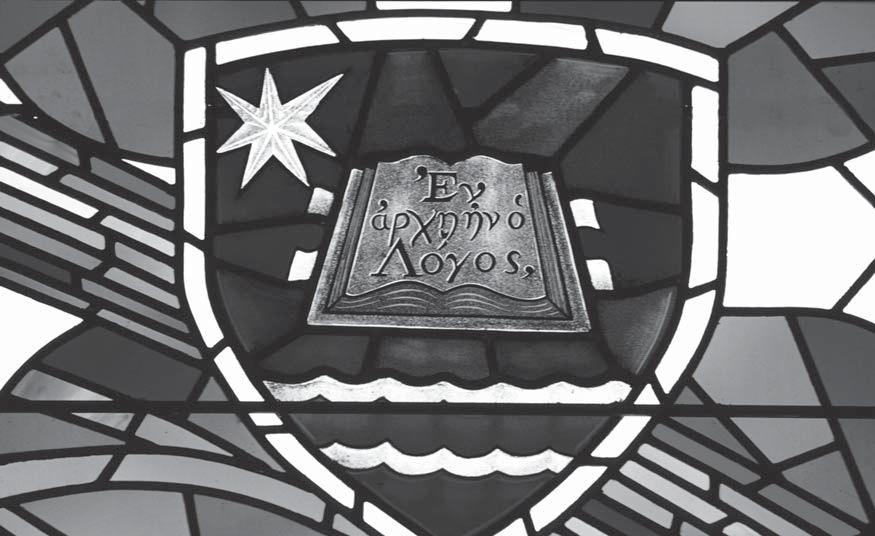
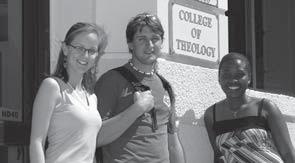
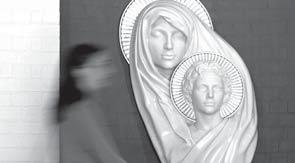
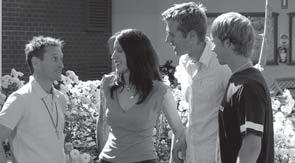
18 November 2004, The Record Page 5
Former Senator and Minister for Justice under Prime Ministers Bob Hawke and Paul Keating, Fr Michael Tate, with Dr Ford at Parliament House in Perth last November 9.
Golden Jubilarians Charles and Daphne Stevenson.
The trouble with atheism (again)
The trouble with atheism is that it doesn’t understand human nature, and the trouble with atheists is that they seldom understand the meaning of their own ideas.
Nick Miller gave a good illustration of the second problem in an article urging us to ‘keep religion out of politics’ in The West Australian on November 11.
Miller said that, unlike ‘believers’, he felt the need to prove his belief. He then assurred us that God doesn’t exist and went on tell us that belief in God “…is just a psychological manifestation of a bundle of instincts and genetic drives”. That’s all the proof he offered – and he didn’t even bother to explain why his disbelief in God is not also ‘just a psychological manifestation of a bundle of instincts and genetic drives’. Perhaps he knows it is, and didn’t think it necessary to say so, or he edited it out for space reasons!
But, armed with his ‘proof,’ Miller granted all democratic rights to those who share his atheism or his particular 21st century morals, but granted none to those who do not. The problem is that he simply does not understand democracy. This is not surprising, but it is a worry.
Democracy is not simply a method of voting. Democracy is the structure of a society based on the belief that all people are equal and are to be treated with equal respect because of that. They may not be equal in their attributes (strength, intelligence, charm, cunning) or their circumstances (wealth, power, origin) but they are equal in their humanity. This is the fundamental anthropological and moral principle on which democracy is built.
PO Box 75, Leederville, WA 6902
Tel: (08) 9227 7080, Fax: (08) 9227 7087 cathrec@iinet.net.au
But the principle is not merely expressed in voting rights. It is the principle on which the process of government must function. Elected governments must govern with respect for the inherent quality of being human. We can only achieve this if we are prepared to make a sustained effort to understand the true dignity of the human person. Having come to at least some understanding of how profound this principle is, we must be prepared to live by it and govern by it. This is the morality that is the foundation of democracy and which is contained in democracy.
The understanding of this rightness appears to be built into human nature, but is not always fully present in human society, or in human consciousness.
For example, when the pro-democracy movement emerged in China in the events of Tiananmen Square in 1989, the primary desire for democracy expressed by the student leaders was not political reform, but the removal of corruption. They rightly understood that corruption is an affront to the dignity and equality of the human person.
Similarly, the High Court of Australia ruled that freedom of expression is implied in the constitution, and used this implied freedom to strike down the limitations on political broadcasting in the days before an election. The High Court had to find it in the constitution so it could treat it as a matter of law, but in reality the court found that freedom of expression is part of the inalienable freedom that arises from the dignity of the human person. This freedom contains our responsibility to truthfulness, especially in parliament and the public arena.
In this country, our implied and real freedoms are not written down and are often not respected. Most people would naturally assume that Australians have the right to choose their own spouse and found their own family, but every now and then immigration officials order someone’s spouse to leave the country or refuse to allow them to enter. This is a serious distortion of the relationship between Australian citizens and those governing them, but the principle is so little understood that governments and bureaucracies get away with these things too often.
The true understanding of democracy is the understanding that the dignity of the human person transcends the authority of the state (the opposite of the monarch/subject relationship) and simultaneously that dignity can only be preserved when we live in the transcendent truths of our nature because only the truth sets us free.
Behind most of the laws of a reasonable democracy there lies at least a glimpse of the truth that we must respect the dignity of the other person if we are to live in mutual freedom.
This understanding, on which the only effective (though imperfect) democracies have been built, is an image of the relationship between God and mankind, in which the Creator has given us the freedom to choose and also revealed to us the harm that we do to ourselves when we choose contrary to the will that created us.
When democracies forget this, they are in serious danger of developing false models of what it means to be human. They might even descend to the level where life itself is not the gift given to the one who lives, but is held in thrall by another, possibly even a mother.
letters to the editor
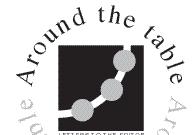

One more time...
Here I go again. Once more channel 10 has produced a live program, this time Australian Idol, where the producers have seen fit to ‘beep’ out language, which, sadly one hears everywhere where young people gather – but left in the name of our Lord Jesus Christ. In the ‘good old days,’ we had, in most parishes, a Holy Name Society. These men would have jumped onto this and caused such a stir. Please ask your readers to write, call, or e-mail Channel 10 demanding this practice cease.
This is a matter for all Christians, not just Catholics. I beg your readers: don’t stop with yourself. If everyone enlisted two Catholic/ Christian friends and encouraged them to do the same we could really do some good. In fairness to Channel 10 I do applaud this concept, which encourages young singers and does give our children a decent ideal; but no more snippets of auditions allowing the breaking of the Third commandment.
Mrs Ann Worner Joondanna
The real issues that counted
Exit polls conducted after the US elections found that voters mentioned “morality” and “values” more often than any other issue of concern, including terrorism or
We can do these things
Iam writing in regards to the current debate on abortion which we have been reading and hearing about lately.
I firmly believe that the ABC documentary that started this current debate, “My foetus”, has begun to unmask the horrendous evil that abortion is. This debate is essential for the Australian community regardless of those in the community who would like the issue hidden from the public view. Abortion not only results in the death of innocent Australian children (100,000 babies every year) but also causes enormous emotional harm to the mothers of these children. Consequently, the mental and emotional scarring abortion inflicts on a woman can also affect relationships with family members which in many cases results in family breakdown.
Some constructive ideas have been raised in this most recent debate. They include, but are not limited to:
■ A national forum on the issue of abortion. We live in a democracy so I can’t see why anyone would object to such an idea.
■ Cutting all Medicare funding for abortion and re-allocating the money to crisis pregnancy centres that provide assistance to both mother and child (note that the federal government, while not having control over state laws which have legalised abortion does control the Medicare system which funds abortion).
■ Requiring pregnant mothers (and the fathers too) to view ultrasound scans of their unborn child with the objective of providing the full amount of information to parents on their pregnancy.
Can I urge all Record readers to email the 12 senators in WA as well as their local federal member of parliament supporting these suggestions and any other helpful ones which may occur to them.
The 12 WA Senators can be contacted via: http://www.aph.gov.au/Senate/senators/homepages/s-wa.htm
And your local House of Representatives member at: http://www.aph.gov.au/house/members/mi-alpha.asp
We need to redouble our prayers and actions now in order to fight the holocaust of abortion. May God bless you for your efforts on behalf of His children.
Matthew Monisse Eaton
the economy. President Bush, like Australia’s PM John Howard, has increased his majority.
They have both recognised that values such as protection of traditional marriage are the bed-
rock of society - and most people want that protection.
How sad that many in the media just don’t understand.
Mrs Roslyn Phillips Adelaide
SA
Chinese Evangelists come to Perth
Young Chinese evangelists are coming to Perth
The Chinese Catholic Community and the Indonesian Catholic Community are combining to host a visit to Perth by a group of young Chinese evangelists known as the Friends of Jesus’ Passover.
The highlight of their visit will be an Evangelisation Concert at the South Perth Civic Centre on Wednesday, December 1.
Mr Augustine Lai, chairman of the Perth Chinese Catholic Community said that the 15 members of the Friends of Jesus’ Passover, led by a priest from Hong Kong, would fly into Perth on November 29 and visit community members that day.
They would attend a prayer evening the following day before staging the concert on Wednesday
night when they would perform songs of their own composition in Cantonese, Mandarin and English.
They would also share their joy, their prayers, and their faith experience with all. The Indonesian Youth Group would also perform at the evangelisation concert.
Mr Lai said the Friends of Jesus’ Passover were a group of Chinese Catholic Youth from various overseas Chinese communities around the world. They gathered each year to do an Evangelisation for Overseas Chinese.
The Friends was not a formal Institution. Members were free to join at any time or even for a short period. What they had in common was a strong faith in Jesus, a solid spiritual life, and the desire to spread the Gospel of Jesus among brothers and sisters who have not accepted Jesus yet.
They have been welcomed to Perth by Archbishop Barry Hickey.
The Friends of Jesus’ Passover began their missionary journeys in October 1999 with their first Evangelisation Concert at Elizabeth Stadium in Hong Kong.
The second missionary journey ran between July 4 and December 28, 2000 and took them to Auckland, Sydney, Melbourne, Macau, Los Angeles, New York, Calgary, Vancouver and Hong Kong. From June 30 to July 14, 2001 they traveled to San Francisco, Seattle, Toronto, Miami and Lima (Peru).
The fourth missionary journey was from November 28 to December 15, 2002 in Brunei, Port Moresby, Brisbane and Singapore.
Last year’s journey from June 30 to July 15 took in Houston, Atlanta, Washington, Montreal, Philadelphia and Chicago, while the current journey from November 28 to December 14 will see them in Perth, Kuala Lumpur, Malacca and Ho Chi Minh.
perspectives Page 6 18 November 2004, The Record editorial
Vista
THURSDAY, 18 NOVEMBER, 2004
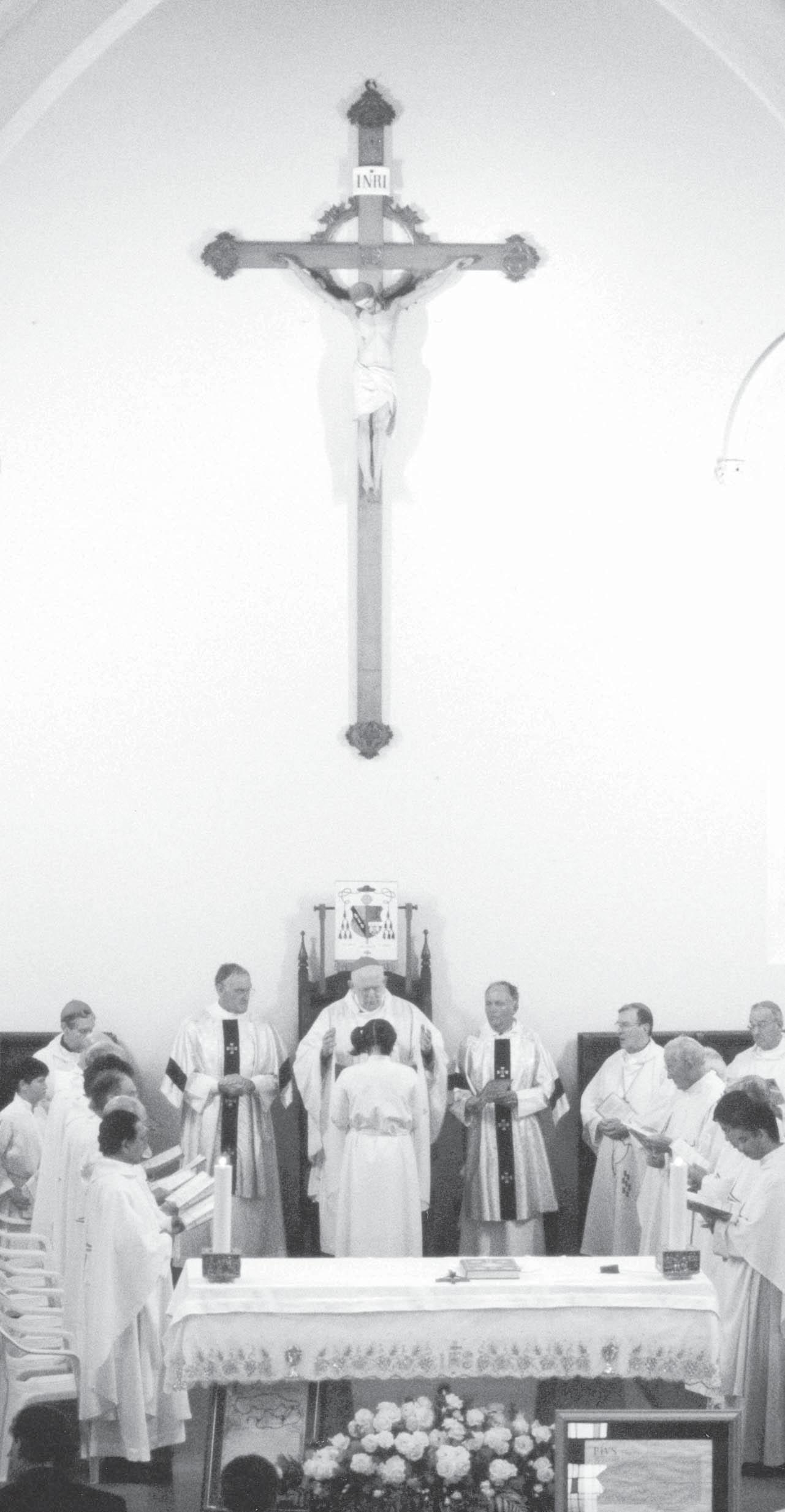
Setting a future Course
St Patrick’s Cathedral in Bunbury was packed with parishioners last Wednesday evening November 10, for a special Mass celebrating the 50th anniversary of the diocese.
Bishop Gerard Holohan of Bunbury concelebrated the Mass with priests and bishops from around Australia including Archbishop Barry Hickey of Perth, Auxiliary Bishop Donald Sproxton of Perth, Bishop Christopher Saunders, of Broome and Bishop Justin Bianchini of Geraldton.
The Bunbury Diocese includes the South West, Great Southern and South Coastal regions of Western Australia. Auxiliary Bishop Brian Finnigan of Brisbane and Bishop Patrick Dougherty of Bathurst in New South Wales were also present to mark the occasion.
Monsignor Francisco Padilla, the acting Apostolic Nuncio, or papal ambassador, to Australia read a statement on behalf of Pope John Paul II, congratulating the diocese on reaching the historic milestone.
In his homily Bishop Holohan asked ‘What is God’s plan for our immediate future?’
The decline in religious practice across the diocese and the materialistic western world was a challenge to the faithful to increase their efforts to share the blessings God had given them, the Bishop said.
It was a time for planting and watering the seed of God’s word while trusting God to see to its growth.
A presentation was also made during the Mass of symbolic artefacts of the history of the Bunbury diocese.
The edited text of Bishop Holohan’s homily is on pages 8-9.
10 ■ Diversity Matters: Pluralism’s
- Page 10
INSIDE: - Bishop’s homily, photographs ■ I Say, I Say: Paul Gray looks at Cameron Diaz’s fear of losing her body - Page
the norm
soon to be on the Web
Perth, Western Australia
Bishop Gerard Holohan of Bunbury, with fellow priests and bishops, prepares to celebrate Mass in St Patrick's Cathedral, Bunbury, for the 50th anniversary of the diocese. Second to the right of Bishop Holohan is Bunbury Bishop Emeritus Peter Quinn.
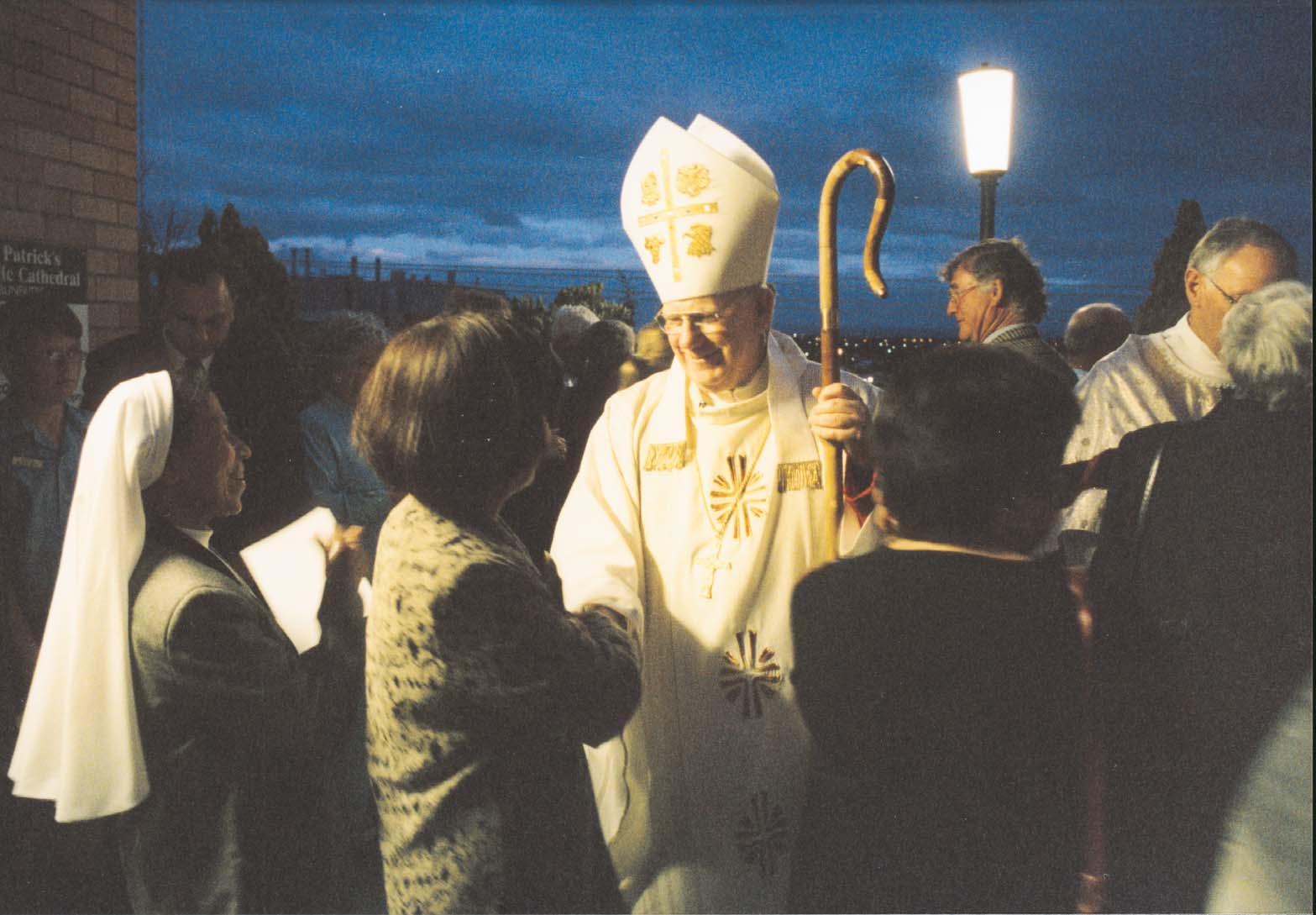
“The lesson of the dying Jesus is that we need to keep praying and offering our lives to God as he did, that the seeds of the Gospel sown in our families, parishes and schools across our diocese eventually will bear fruit."
The way forward
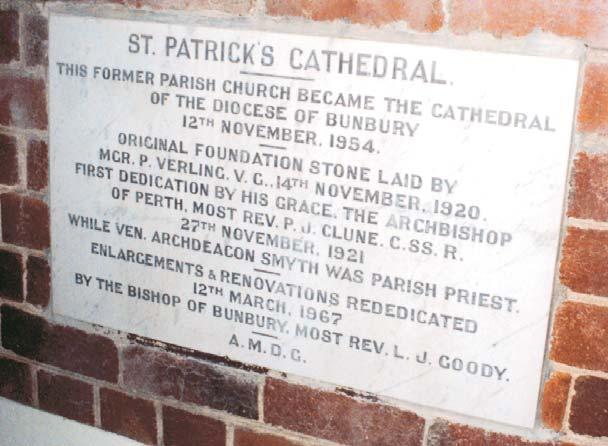
In his homily for the Golden Jubilee of the Bunbury Diocese last Wednesday night, Bishop Gerard Holohan urged Catholics to count their blessings and to renew their efforts to spread those blessings throughout the diocese.
“Ajubilee is a celebration, and a Church jubilee is always a celebration of the blessings of God,” he said.
“Tonight, we give thanks to God for all the blessings we have received as individuals and as communities these past fifty years within the Bunbury Diocese and at the same time we ask, ‘What is God’s plan for our immediate future?’
First, there were the blessings received through worship and the sacraments leading to a close personal relationship with God the Father, the Son and the Holy Spirit and close personal relationships with one another through marriage, family, friendship and mutual service in the Church.
“For all of these blessings, tonight
we say ‘thank you’ to God,” Bishop Holohan said.
The jubilee was also a time to remember and thank all those who had worked for the Church, from the three previous Bishops (Goody, McKeon and Quinn) through to all those who cared for and cleaned the churches.
The Gospel
Despite these efforts, the diocese and our part of the world, were going through one of the periods of decline in religious practice in the history of the Church. Given the decline in religious practice across the Diocese, some had questioned why the past fifty years seemed to have produced limited fruit.
“Here we need to remember two of Jesus’ parables,” the Bishop counselled.
“The first is the Parable of the Sower [Mark 4:1-9, 13-20] which teaches that the seed of the Word bears fruit in the hearts of all open to receiving it [Mark 4:20]. And across our Diocese, there are so many people of great faith who are living signs of this teaching. There can be no doubt about the tremendous faith of a great number of people across our Diocese!
“Yet, in the parable of the Sower, Jesus also warned that the seed of the Word would not grow in everyone. It would be choked, for example, in those for whom material goods were the first priority in life, and those whose lives were so
Through Jesus, people can experience Christian Salvation. This is the salvation that brings growing harmony with God. In turn, harmony with God leads to increasing harmony within. And, in turn again, this leads to growing harmony with others. This is the ‘Peace on Earth’ the angels sang of at Jesus’ birth [Luke 2:14].
seeds germinate within the soil. On the surface, nothing seems to be happening, but beneath the surface, new life is beginning.
“As we ponder our experience as a Diocese in the light of these Parables, we must remember the lesson of the dying Jesus, the one who had sown the seeds of his Gospel to multitudes of people, but who, in human terms, seemed at that point to have failed. Before his dying eyes were only Mary his mother, the other Marys, John and a few others standing in the distance [eg Matthew 27:55-56; John 19:25-26].
“The seeds Jesus planted bore fruit later, at Pentecost, with the conversion of the three thousand. Yet, these people had seen and heard Jesus. Peter described Jesus as [Acts 2:22]:
… the one commended to you by the miracles and portents and signs God worked through him when he was among you, as you know.
“The lesson of the dying Jesus is that we need to keep praying and offering our lives to God as he did, that the seeds of the Gospel sown in our families, parishes and schools across our diocese eventually will bear fruit.
“Let us renew our commitment to prayer to God who gives the increase. Let us all, but especially the sick and the suffering, unite our sufferings with Jesus on the cross.
Where to from here?
“Jesus told his followers [Matthew 28:19]: Go, therefore, make disciples of all nations; baptise them… and teach them all my commands…
busy they had little time for God [Mark 4:19].
“The Church’s pastoral experience teaches us that the seeds of the Word can remain in these people’s memories, and then penetrate into their hearts in times of joy. These times may be the birth of a child or a marriage, a child’s First Communion or Confirmation, a Christmas Mass. This is why the Church invites parents especially at such times to think about the practice of their faith.
“Our pastoral experience also teaches us that the seeds of the Word in people’s memories can also penetrate their hearts in times of adversity – the death of a loved one, a funeral Mass, being diagnosed with a serious illness, becoming unemployed, and a period in hospital. Such times invite the kind of reflection that can open the heart to a seed of the Word.
“The second parable to remember is the Parable of ‘The Seed Growing by Itself’. Mark seems to have inserted this parable in his Gospel to answer the question: ‘If Christ’s Kingdom is so powerful, why can’t we see its fruits?’ This parable is to do with ‘watering’ the Word, something that is needed while seeds lie in the ground. The Seed of the Word of God will have been planted in the hearts of many in our Diocese, and it will bear fruit in God’s time.
“As our farmers know, planted
in God’s own life, to enter into the most intimate relationship possible with God [Divine Revelation 3]. God calling our people
“The Council taught us too that God fulfils this purpose of calling people into relationship in various ways.
“The most basic of these is through creation when the beauty, the variety and the fascination of the universe touches our hearts. As one teenager put it, ‘when the sun is setting and you are on your surf board while the ocean is calm, you know Someone Big is there’. This, then, is one way God is calling those who have given up their religious practice into deepening relationship. One of our tasks is to help them realise this. “Then there is a deeper level through which God calls people into relationship – the yearnings and questions of the human heart for perfect love, for goodness, for inner harmony and peace, for the inner freedom to become the ideals that reflect whom God created us to be.
“The questions of the human heart include: ‘What is the purpose and meaning of my life?’ ‘What is the meaning of suffering?’ ‘Of death?’ ‘What is the secret to a lasting relationship?’ ‘How can I overcome my human failings to live my ideals as a spouse, a parent, a priest, a religious, a friend?’
“God created the human heart to seek its Creator. Its yearnings and questions can only be satisfied fully by God. As St Augustine put it: You made our hearts for yourself, O God, and our hearts are restless until they rest in you.
“There are around 300,000 people across the South West, the Great Southern and the South Coastal regions of Western Australia. Most of these people have little connection with God. Our future mission is to lead these people to God so that their lives grow in peace and blessings.
The critical priority
“Yet in saying this, we have to acknowledge that, currently, there is a religious decline within the Catholic community in our Diocese, as there is a decline across the materialistic world (even though, world-wide, the Church’s growth is reported to be four to five percent greater than the world population growth).
“If our mission is to lead others to God, therefore, one critical priority must be to help those in our Catholic community who have given up their religious practice to return to the fullness of their faith. They too need to be evangelisers.
“To achieve this, we need to do two things.
“First, we need to look at what Jesus referred to as ‘the signs of the times’ in our Diocese [eg Matthew 16:3; Luke 12:56]. Then we need to ask ourselves: ‘What should be our response to these signs?’
“The Second Vatican Council reminds us that the signs of the times are the signs of God’s presence and purpose in the Church and the world.
“The Council also reminded us that God’s most basic purpose is to call every human being to share
proclaim the Gospel in ways that connect it with people’s experiences of God calling them into relationship.
We need to do this in our families, our schools, our friendship groups, our parishes and our wider communities.
A major priority here needs to be those who have given up their religious practice.
“Our first step in this mission is to renew the Christian Witness of our parishes. We need to reflect the faces of Christ’s love, as described in the Lenten Pastoral Letter Do They Know us by our Love? – especially the faces of Christ’s humble service, of Christ the Good Shepherd, of the welcoming Christ open to all, and the Christ who challenged his society.
Then, we need to help people understand how God is calling them into ever deepening relationship, especially through the three ways I have described – creation, their hearts, and their yearnings for peace within and with others.
Second, we need to proclaim Jesus as Saviour, and the power of His Kingdom for their lives. Only this can give the Salvation that satisfies the human heart.
We need to call people to personal conversion to Jesus Himself. Without this, there can be no Christian Salvation and the basic human yearnings for peace within, and peace with others, cannot be fulfilled.
“This call to personal conversion needs to be repeated constantly also in our parish communities. A parish community is as strong as the personal conversion of each of its members to Jesus himself.
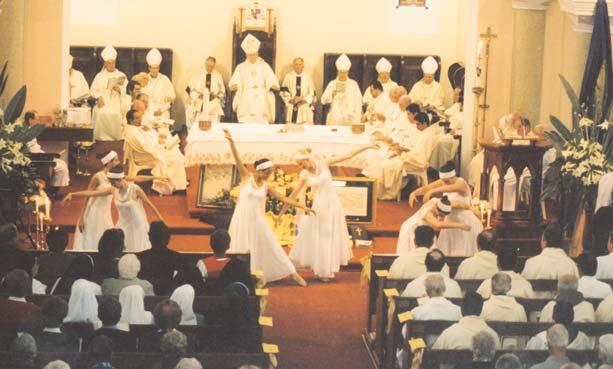
growth.
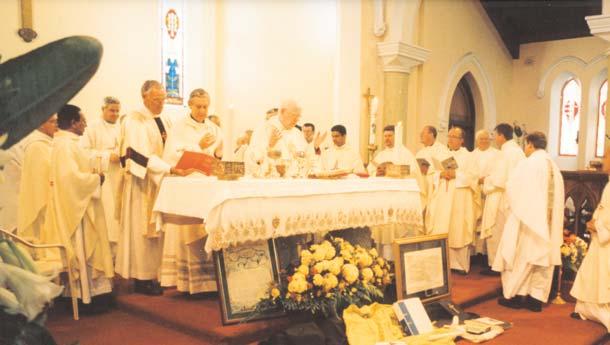
“God also calls people into relationship through their heart-felt desires for consolation and care in times of suffering and weakness. These may be times of illness, of grief, of marriage breaking up, of experiences of failure. God’s call is echoed in the words of Jesus [Matthew 11:28]: Come to me all you who labour and are overburdened, and I will give you rest. Do we not see these kinds of human heart yearnings and questions in our families and others in our diocese? These are the second way God is calling them into deeper relationship.
Christian Salvation
The climax of God’s call into relationship was the coming of Jesus, Son of God and Son of man.
In Jesus, human beings can experience and relate with God directly as God’s own sons and daughters.
Through Jesus, people can experience Christian Salvation. This is the salvation that brings growing harmony with God. In turn, harmony with God leads to increasing harmony within. And, in turn again, this leads to growing harmony with others. This is the ‘Peace on Earth’ the angels sang of at Jesus’ birth [Luke 2:14].
“Across our diocese, do we not see people yearning for Jesus, though they may not realise it? Do we not see in them signs of yearning for inner peace, and for peace and harmony with others?
Our response: New Evangelisation
“Our future mission as a diocese, therefore, is to continue to
“Finally, we need to share, with all who convert to Him, the experiences of God that Jesus alone makes possible – the experiences that are the basis of the Creed, the Sacraments, the Christian living of God’s Commandments and the Lord’s Prayer. We need to relate these experiences also to the yearnings and questions in people’s hearts.
And we need to help all who do convert to Jesus to believe in the teachings and values of Jesus. These are the paths into the experiences of God He alone makes possible.
Let us plant and water – and pray for the increase
These are the broad steps of what Pope John Paul II calls New Evangelisation.
These are the ‘new methods and new ways’ of planting the seeds of the Word of God in others’ hearts.
For many who have given up their religious practice, these are the ways we need to finish planting the Word of God. These too are the ways we need to keep ‘watering’ the seeds of the Word already planted across our Diocese, seeds that are still germinating beneath the soil.
But in all this, each of us needs to keep trying to perfect his or her own conversion. We need to keep nurturing our own faith.
And let us always turn to prayer remembering the words of St Paul [1 Corinthians 3]:
In this… only God… gives the
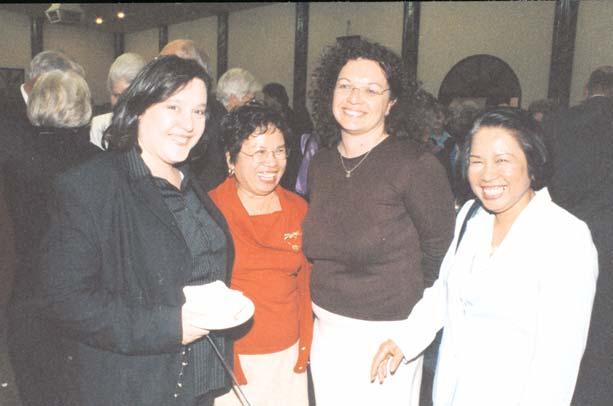
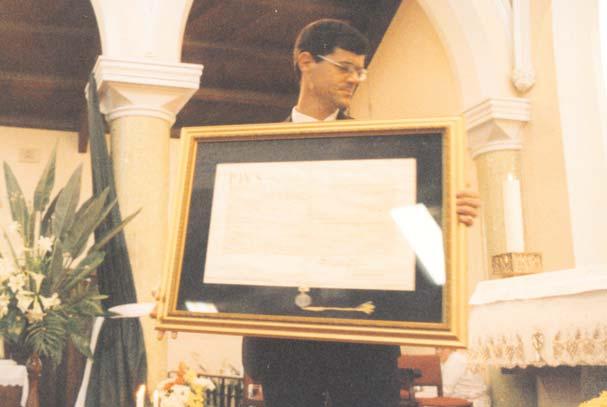
Page 8 18 November 2004 The Record 18 November 2004 The Record Page 9
The foundation stone of the-then new St Patrick's cathedral laid in 1954.
Ward Italiano carries the framed original Papal Bull issued by Pope Piux XII erecting the Diocese of Bunbury in 1954.
Emma Vagliviello, left, with friends including Sue Barton, second from right, enjoys a social moment at the Italian Club after the Mass.
Priests and Bishops gather to concelebrate the Jubilee Mass.
Students from Bunbury Catholic College perform a liturgical movement during the Jubilee Mass.
Bishop Gerard Holohan of Bunbury greets parishioners from across the Diocese who participated in the Golden Jubilee Mass on Wednesday evening 10 November at St Patrick's Cathedral in Bunbury.
Photos: Peter Rosengren
Vista OPINION REFLECTION
i say, i say
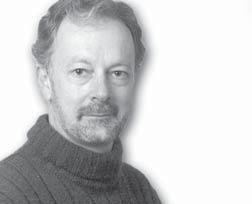 ■ By Paul Gray
■ By Paul Gray
Cameron Diaz, apparently, has lost control over her body. Not through some crippling illness – much less a reallife return of the curse of Princess Fiona in Shrek – but because of something even more insidious: The stupidity of American voters.
Before the recent US poll, Diaz was one of a host of US celebrities who stood up to publicly warn against the dangers of voting for Bush and his “crazy” religious agenda.
In a line more memorable than any she’s delivered in the movies, Diaz told American women, via Oprah Winfrey’s show, that should Bush beat Kerry, “we could lose the right to our bodies.” Live TV isn’t the same as acting, I guess - so maybe Diaz can be forgiven this moment of exaggeration of the dangers of returning the reportedly “pro-Life” George W. Bush to the White House for a second term.
Nevertheless, Diaz’ line is a typical example of a growing
diversity matters
trend – rampant fear, loathing and hilariously overdone hostility from social liberals towards, what they perceive as the re-birth of religious conservatism in America and Australia today. This religious beast is a monster more hideous than anything in fairy tales, if you believe the outpourings of some members of the acting and entertainment community.
Australian actor Kevin Summers, for example, believes that “social conservatives” like Deputy Prime Minister John Anderson are out to “determine what we think, say, write and do.”
That’s a large agenda, Kevin. But if the commercial promoters of reality TV haven’t yet succeeded in controlling all our minds, are you sure the National Party can do it?
Behind this new anti-religious McCarthyism coming from the beautiful people, there lies a genuine misunderstanding about what’s really going on in the battle of ideas in Western society.
This does not just affect actors. Even thoughtful commentators like former newspaper editor Greg Hywood are prone to identify the concerns many people have over abortion with a simple desire to copy US culture.
Hywood, for example, said the other day that the rise of abortion as a political issue “can be directly related to its ever-present centrality among American conservatives.”
The world at our door
Pluralism in Western societies has become the norm rather than the exception.
■ By Fr Anthony Paganoni CS
It seems as though the more economically and technologically advanced a society, the more ‘plural’ it is. Perhaps a notable exception is Japan, ever on guard against foreign influences and yet, as I understand, developing a taste for Western goods and fashions.
Leading the race towards greater pluralism are the United States, Canada, Western Europe and Australia. Western cities draw ever-increasing diversity into relatively small spaces: Oslo, the relatively small capital of a previously homogeneous Norwegian society, now features over a hundred ethnicities. Berlin is the world’s second largest Turkish city; Chicago the second largest
Polish city, while Sydney and Melbourne host an impressive mix of cultures. Close to 500 cities on our planet have populations of more than a million. Most of them are highly multicultural.
What was previously the stuff of atlases is now on hand at close quarters through a variety of people, goods, fashions, cuisines and modes of living right under our noses. Where until very recently it took imagination or time-consuming, expensive travel to come face to face with diverse and exotic peoples, now we fall over them on our doorsteps.
Migration escalates as developing technologies increasingly facilitate travel and communication.
Migration has truly revolutionised our life. It has intensified, and it seems to be getting increasingly chaotic, as ever greater number of people flee areas torn by war and hunger to seek refuge elsewhere, by whatever means available.
Governments are hard pressed to control such unprecedented flows of
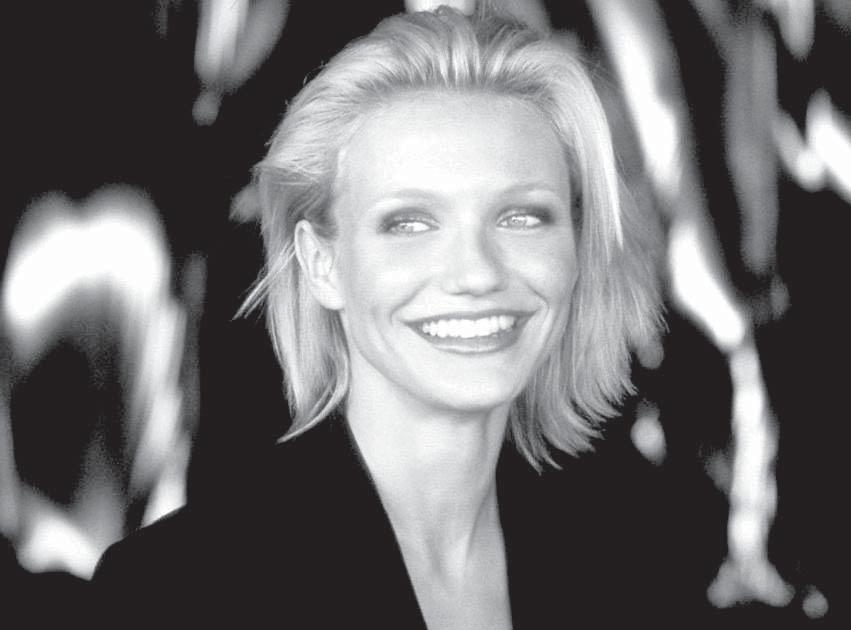
As though Australian abortion opponents are incapable of thinking for themselves. In fact, the rise of religious conservatism today – if it actually exists – is undoubtedly affected, if not totally caused, by the collapse of alternative intellectual approaches to the big questions in life and society. Particularly atheism. Alister McGrath, professor of historical theology at Oxford University, wrote recently that until the fall of the Berlin Wall, atheism enjoyed a status within the upper echelons of Western society akin to a state religion. This was largely due to the long-running romance between
Western intellectuals and the “scientific” Marxism of the Communist world. When Communism died, so did the romance – and with it, the once-proud arrogance of Western atheism. Like the old man in Monty Python, atheism’s not dead yet – but it’s not looking well. “The most significant, dynamic and interesting critic of Western Christianity is no longer atheism, but a religious alternative – Islam,” McGrath wrote in The Spectator. This explains a great deal of the angst – and also the exaggerated criticism towards “Christians” –now coming from alienated members of the once-strongly atheist
The Priest's Vocation
people. Some governments are resorting to draconian measures, such as building walls and trenches across the USA and Mexican borders, or sending back to Libya African refugees landing on the Mediterranean island of Lampedusa or excising thousands of islands from the official map of Australia.
Reactions to the presence of people with multiple differences (language, culture, race and religion) have led to the rise of populist, rightwing political parties across western Europe and, for a period, in Australia.
The notion and acquisition of citizenship by immigrants becomes a hotly debated issue, as nation states legislate new ways of eventually incorporating foreigners.
Today’s world is not only marked by more wide-ranging cross-cultural contacts, but has to grapple with a raft of social and political problems arising from the challenge of living together. Generally, societies receiving additional guests adopt an ‘either/or’ attitude, as we will see.
Western bourgeoisie. There is a fear that old-time religion, which was dead and buried except for a few thick-headed troglodyte adherents, according to the reasoning of atheists, is now making a morethan-spectral return.
At the same time, there’s a dim perception – though not yet a full, clear understanding – amongst anti-religious people that the struggle between big philosophies within Western societies has moved on from the stamping grounds of their youth.
A long, long way on. The abortion debate highlights this. Religion, in fact, had never been dead and buried at all, but had simply become invisible to a particular class of Westerners who no longer wished to see it – or at least, to see it as anything more than the common fantasy of the feeble-minded.
The failure by atheists to take religion seriously for so many years is now producing bitter fruit. For one, they’re discovering to their horror that some religious believers are able to both declare their faith and get elected to parliament.
Worse, they’re discovering that “religion” does have some rational and even persuasive public spokespersons. Which discovery is the more shocking is difficult to tell.
The return of religion may be causing Cameron Diaz to lose her body. Others are going out of their minds.
Carrying the Cross for the Call
Second annual pilgrimage held recently
■ By Fr Paul Fox
While every vocational journey is different, the call to the Priesthood and Religious Life is always a call to carry the cross with Jesus.
“My heart was gladdened recently as I approach my sixth anniversary of Priesthood, to see a good number of young men and women participating in the carrying of the cross from Midland to Gingin. Catholic Youth Ministry were involved, together with local parishioners and others from various parishes”.
The pilgrimage began in Midland on Saturday September11 at 8pm and concluded in Gingin on September 12 at
11.30 am, a total of 69 kms. The event was offered up for vocations to the Priesthood and Religious Life
The Lord sent us good weather and those who participated thoroughly enjoyed the event and are keen to participate again next year. It was a great witness to the faith as the procession wound its way along Great Northern Highway and Brand Highway to Gingin. Many passers by showed keen interest and were encouraging.
Two people at a time carried the cross. There were fourteen stations along the way and others took over at each station. Support vehicles accompanied the walkers. Prayers were recited at each station and the Rosary was continuous. One parishioner walked almost the whole distance to Gingin. Many are already looking forward to next year’s event which will be larger still.
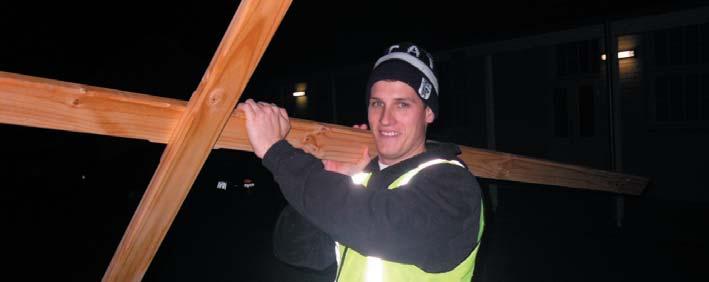 Fearful of disembodiment? Cameron Diaz.
Lucas Hurley from the Catholic Youth Ministry carries his cross towards Gingin.
Fearful of disembodiment? Cameron Diaz.
Lucas Hurley from the Catholic Youth Ministry carries his cross towards Gingin.
Man of faith and courage
OBITUARY
Dr Patrick Cranley
1929 - 2004
A man for God, Church, family and those in need
Greatly revered Leederville medical practitioner, Dr Patrick Cranley died aged 75 on October 14, two weeks after being named Metropolitan Senior Citizen of the Year.
Reverence and admiration were displayed in the larger-than-usual number of advertisements in the columns of the West Australian following his death. Most comments were that he was gentle, kind, compassionate, extraordinarily generous, dedicated to the poor, a humanitarian and an honourable courageous patriot.
At his funeral Mass, at the Church of St Joseph in Subiaco, concelebrated by his brother Father John Cranley OMI and 20 priests, his son-in-law, Tim Ungar said in his eulogy: “Pat Cranley was a great man. He was quiet, caring, unassuming; committed to humanity, optimistic, stubborn, selfless; totally immaterial; humorous, humble, unconventional; defiant of authority, trusting and trustworthy, non judgmental, a loving brother and devoted to his family.
“… Pat’s greatness stemmed from his lifelong service to the community on many levels, without the expectation of anything in return. He turned his back on material wealth but he never turned his back on anyone in need.
“The core of Pat’s being was his belief in God, his unyielding faith and the Catholic Church. He lived to serve God and this was the pillar on which the principles of his life were based.”
Dr Pat, as he was affectionately known to thousands, was born in 1929 in Fremantle, where his father, an Irish migrant who came to Australia in 1906, ran the Esplanade Hotel. He was the third of 11 children of Michael Cranley and Kathleen O’Graedy.
His father and the Cranley clan became well known Wembley identities when Mick Cranley decided to build the Wembley Hotel at a time when the site in Cambridge Street was at the outer limits of suburban Perth.
Pat was educated by the Jesuits at St Louis College in Claremont and graduated in medicine at Adelaide University in 1952. He set up a medical practice in the wheat-belt town of Kondinin. Here he met Dorothy Thirlwell, who worked in the Shire Office. They married in 1955.
Drugs
Among Dr Cranley’s greatest achievements was his care for some of the most damaged in society - drug addicts. From 1973 until his death, his Leederville practice, to his financial detriment, was principally dealing with drug addicts.
On 20 July 1990 the Medical Board of Western Australia disagreed with his treatment of addicts and found him guilty of “infamous and improper conduct” and sus-
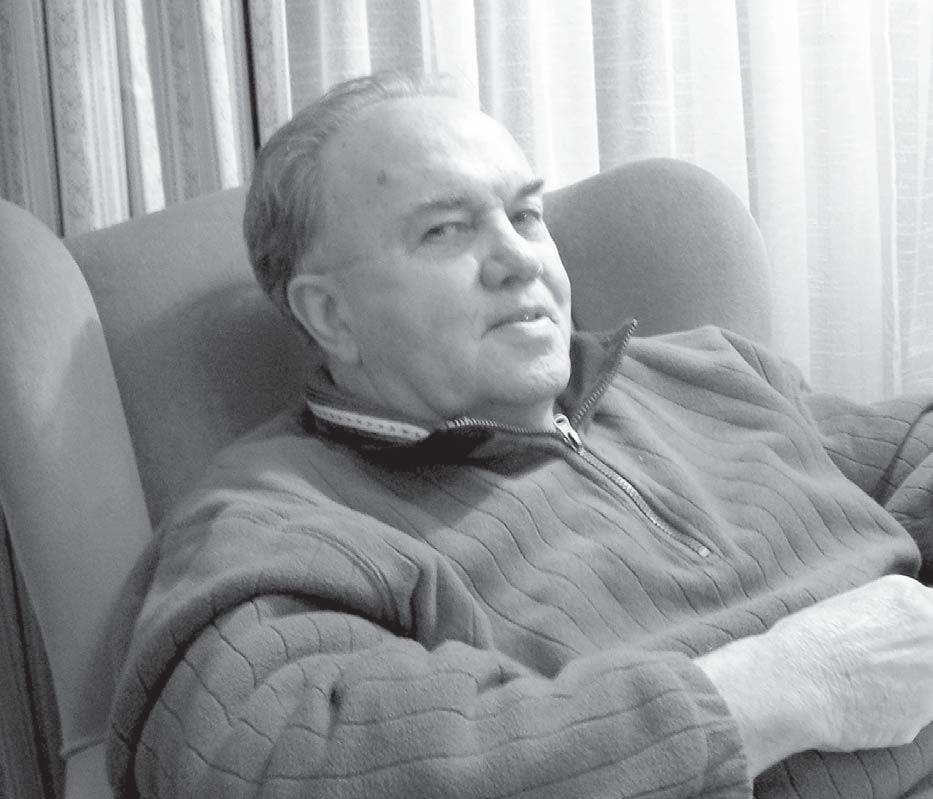
“… Pat’s greatness stemmed from his lifelong service to the community on many levels, without the expectation of anything in return. He turned his back on material wealth but he never turned his back on anyone in need. The core of Pat’s being was his belief in God, his unyielding faith and the Catholic Church. He lived to serve God and this was the pillar on which the principles of his life were based.”
pended him from practising medicine for 12 months. He was devastated by the decision because he was convinced that his treatment of providing heroin addicts with drugs such as valium, rohypnol and doloxene with counselling was correct.
Many rallied to his cause and with typical Cranley stubbornness he contested the Medical Board’s decision in the Supreme Court, bringing several eminent experts from the Eastern States to give evidence on his behalf. The case was heard over five days concluding on 30 November 1990. Cranley won!
In the reasons for his judgment Justice Ipp described Dr Cranley’s practice as “an exception to the rule that medical practitioners are unwilling to treat drug addicts. For some 17 years he has conducted a practice principally treating drug addicts. He sees 5 to 6 people per day on drug problems, spending 2 to 3 hours a day with them … he has seen between 25,000 and 30,000 patients with drug problems.”
And Dr Cranley was “imbued with a high degree of compassion and having a sincere and deep concern for the plight of patients … who have become degraded and hopeless by the effects of their habit and their concomitant
lifestyle. Dr Cranley’s treatment was not in any way influenced by mercenary considerations … He displayed great dedication to his patients.”
But it was the scientific evidence of highly reputable and experienced medical practitioners, particularly consultant physician, Dr Raven, whose evidence testified to the correctness of his method. Dr Raven said that Dr Cranley “should be thanked not criticised or persecuted for his actions.”
In his conclusions Justice Ipp said “the appeal succeeds in relation to all the findings of misconduct against Dr Cranley … the orders made by the Board should be set aside and that Dr Cranley is not guilty of infamous or improper conduct”
In 1997 he was honoured to be chosen by the Australian Catholic Bishops to represent them at a conference on drug addiction at the Vatican. He was privileged to have a meeting with Pope John Paul II.
A Pro-Life Doctor
Without any doubt Pat Cranley had a deep conviction that all human life was sacred. This included his numerous elderly patients, who will miss him greatly. He was a foundation member of Right to Life in Western Australia and of Pregnancy Assistance. A prolific
have damaged his country practice. His long-time friend, Brian Peachey, who was then the State Secretary of the DLP, said “He did not win the seat, but gave it a good shake and polled the highest number of votes ever recorded in any electorate by a DLP candidate in Western Australia. When he came back to Perth and set up a practice in Leederville he was active in the DLP and later became the Vice President of the Party.”
His political involvement was shared by Dorothy, who was a candidate in the Federal Elections in 1972 and 1974.
Pat stood as an independent candidate in the 1994 by-election for the State seat of Glendalough caused by the resignation of Carmen Lawrence. In the 2001 State elections be was a candidate for the Christian Democratic Party for the seat of Ballajura. He was not embarrassed to be fighting what appeared to be losing battles. It was policies and just causes that mattered.
Harness racing
Like many Irish descendents, Pat Cranley had a love of horses. For 43 years he was the honorary course doctor at Gloucester Park. Tim Ungar said, “The trots were another lifelong interest. Pat had more trotters than he could poke a stick at and certainly more than he would ever own up to. He had some very ordinary horses and the occasional good one; but his unfailing optimism in life never diminished his belief that each horse he owned was a potential Inter-dominion winner” The day before his funeral an estimated crowd of more than 500 gathered at Gloucester Park for a memorial service.
letter-writer, he often complained that he was too politically incorrect and too few were published.
Vietnam
Typically showing true compassion for the war ravaged people of Vietnam in 1966, Dr Cranley gave three months of his time to work in a hospital in Longs Xuyen south of Saigon.
He returned to Vietnam in November 1974 to attend a conference of the World Freedom League and on his return he promoted a scheme involving the Federal and State Governments, the chartering of an aircraft and various local charitable organisations to bring as many as 100 orphans from Saigon. The scheme was about to proceed in April 1975 when Saigon was taken by the Communists.
Politics
Pat Cranley had a deep and perceptive interest in things social and political. When the split in the Labor Party over Communism happened, resulting in the formation of Democratic Labor Party he sided with the DLP.
When the 1958 Federal election was called he nominated as the DLP candidate in the electorate of Canning. This was against the advice of some members of the Cranley family because it might
Pat Cranley’s sudden death has left a deep void in the lives of many. His large family suffered greatly. But so did thousands of his patients and friends and the members of the numerous organisations to which he generously gave his time. He is survived by Dorothy, his wife of 49 years and his 11 children, Margaret, John, Josephine, Christine, Carmel, Mark, Jane, Matthew, Paul, Louise and Quentin (Luke the fourth Evangelist died in infancy) and 27 grandchildren.
In a remarkable paid advertisement in the Subiaco Post under the heading ‘A Tribute to Pat Cranley, an anonymous person wrote:
“With an unrivalled compassion for humanity combined with an ability to translate this in an eminently practicable form of action, Pat has given solace, service and care to many thousands of his fellow human beings at a personal level. This combined with penetrating, and always individually different analysis of social and political mores, resulted in a constant opening of new dimensions of thought for those fortunate enough to have known him. Such a mixture of rare qualities stamped Pat as a unique, lovable and indispensable member of any community in which he lived and worked. We have lost a great friend, a sage counsellor, an untiring carer and a driving force for better community. Any generation who sees his like again will be fortunate indeed.”
18 November 2004, The Record Page 11
Dr Pat Cranley, in a recent photograph, resting at home.
THE WORLD
Paying homage to Our Lady
African, Asian migrants make Marian pilgrimage up Lebanese mountain
■ By Doreen Abi Raad
Nearly 1,000 Africans and Asians -many of them migrant workers - spent a night climbing a mountain to pay homage to Our Lady of Harissa.
They began in the coastal town of Jounieh and wound their way past the headquarters of the Maronite Catholic Church to the basilica, nearly 1,900 feet above sea level. Along the route, people emerged from buildings to watch in silence. Many observers made the sign of the cross. A Hindu from Sri Lanka organised the evening pilgrimage, working all day on October 30 to decorate the van on which a life-sized statue of Our Lady of the Immaculate Conception was perched.
“She is the Mother of us all. We love her,” he said.
A succession of praises to Mary blasted from the van’s loudspeakers in English, Sinhalese, Tamil and Arabic as the procession ascended the mountain. African women ululated as they danced, clapped and sang around the stat-
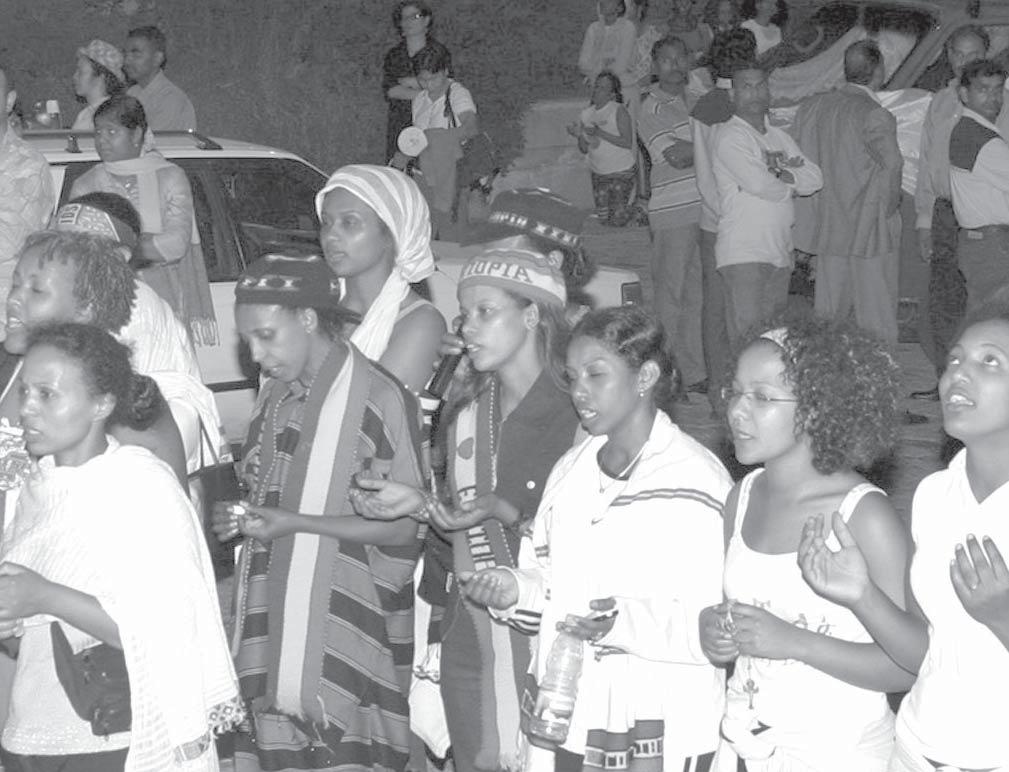
ue. Those from the Philippines joined in singing Marian songs. “I am tired. You are tired. Let’s take a rest to pray the Rosary, then we’ll continue,” announced Father Salim Rizcallah about halfway up the mountain road.
Toward the back of the proces-
sion, those who did not hear the suggestion continued singing and dancing. About three-quarters of the way up, a Filipino woman encouraged her daughter, who was complaining that she was tired.
“Go,” she said. “The Blessed
Cuba needs Church help
■ By Agostino Bono
The Catholic Church needs to help Cubans form civic organisations independent of the government so that people can participate in shaping the future of their country, said a leading Cuban dissident.
"The current Cuban society is in its “terminal phase” with a deteriorating economic and political situation, said Dagoberto Valdes Hernandez, director of the Centre of Civic and Religious Formation of the Diocese of Pinar del Rio, Cuba.
"The communist government of 78-year-old President Fidel Castro is ruling through authoritarian means rather than with policies and programs, he said.
“The Church has to offer places for people to meet and animate them through preaching, through its social and charitable works, through education,” he told Catholic News Service.
Valdes gave two talks in Washington during a visit to receive an award from the American Centre of Polish Culture for his promotion of human rights in Cuba.
Valdes is also editor of Vitral,
Cubans can benefit from Church input in building their country
a quarterly cultural magazine published by the Pinar del Rio Diocese. “Vitral” is the Spanish word for “stained-glass window.”
Currently, church-state relations in Cuba are stable but need to be improved, he said.
Catholics are free to worship, but the Church lacks the freedom to act out its faith in society, he said.
“The Catholic Church has been like manna in the desert” during Cuba’s totalitarian era, giving people a nongovernmental place from which to examine national issues, especially human rights, he said.
This church role had to grow if civic organisations and institutions were to develop, he said. These civic organisations were vital if Cubans were to have a voice in the nation’s future and define what democracy means in Cuba.
More important than who would succeed Castro was the type of society that would emerge. Castro has ruled Cuba since leading a 1959 revolt against
dictator Fulgencio Batista. The answer was not returning to the “old regime,” he said. “We can’t go back to the discredited political models before 1959 or to the models of traditional political parties. Otherwise, history will repeat itself.”
Cubans needed to invent a new style of party politics where “power is seen as a search for the common good and social justice,” he said.
Valdes cautioned against automatically looking to electoral politics as the key to a future democracy.
He said electoral politics were open to the corruption, nepotism and favouritism of previous Cuban elected governments.
He also cautioned against trying to build a future Cuban democracy by first improving the economy through free-market capitalism.
"This opens the door to the dangers of materialism where the well-being of the individual is not at the centre of policymaking, he said."
-CNS
Mother has something for you.”
One Nigerian participant said, “I felt that the procession was sending a message to the Lebanese, that all of us, from all nations, are all united together. I think it touched their hearts and that they will see us (migrant
workers) in a different way.” There are no labour laws in Lebanon safeguarding proper treatment of the approximately 200,000 African and Asian migrant workers, the majority of whom are women working as housemaids under contract for two to three years at a time. Father Martin McDermott, an American Jesuit in his 70s, has been in Lebanon for 32 years, serving as spiritual advisor to migrant workers for nearly 20 years. Many attend his English Mass on Sundays at St Joseph Church in Beirut.
Father Rizcallah, a Lebanese in his 80s, also ministers to the migrants. Each priest speaks more than six languages.
The two priests were among the first to reach the pilgrims’ destination, nearly four hours after setting out. As pilgrims arrived, they unloaded flowers from the vehicles, and the Blessed Mother statue was taken down gently for her final procession into Harissa’s basilica for Mass at 1:30 am.
“The pilgrimage you have made today is a sign, a symbol of your whole life,” Father McDermott said in his homily. “It is as if you are climbing a mountain, going toward God. It is hard, and you get tired, you get discouraged, but Mary is smiling, and she is giving you courage to go toward God.” -CNS
Saint doing the rounds
■ By Kristine Crane
As part of celebrations marking the 1,650th anniversary of St Augustine’s birth, the relics of the African-born saint were making the rounds of Rome churches.
At an inaugural Mass in the packed Church of St Augustine on November 7, people with digital cameras crowded around the remains, contained in a 10-sided, gold-rimmed glass case.
St Augustine’s tomb lies in a basilica in Pavia, in northern Italy, where a Lombard king took the relics in the eighth century.
The remains were being moved to various churches in Rome and Ostia Antica, the port city where St Augustine’s mother, Monica, died, to coincide with a week of Masses and conferences involving cardinals, theologians and religious orders.
Pope John Paul II’s private chapel was to host the relics for a day.
The events highlight the importance of St Augustine in the Church’s history. After the inaugural Mass, Ethiopian Archbishop Berhaneyesus Souraphiel of Addis Ababa underlined the African origins of the saint, who was born in present-day Algeria.
“St Augustine speaks from the heart. At that time, Africa could offer
spirituality very close to the people, and St Augustine learned from Africa,” said Archbishop Souraphiel.
St Augustine’s spirituality has universal reach, expressed through his concept of grace, said Auxiliary Bishop Ernesto Mandara of Rome.
“His teaching on grace is not a philosophical, theological or Christian question. It is a question of spiritual life, the source of all of our capabilities,” the bishop said at the inaugural Mass.
“Men today risk forgetting that everything happens with the grace of God. They think everything happens because of their own scientific and technical skill,” Bishop Mandara said. Reaffirming St Augustine’s contributions to Western thought was one of the goals of the conferences.
“Some people consider him the first psychologiSt
‘The Confessions’ is still one of the most widely published texts in the world. It continues to be translated,” said Father PrevoSt The last of the 60 volumes in the complete works of St Augustine in a bilingual Italian-andLatin edition recently was published in Italy.
Father Bernardino Pinciaroli, pastor of St Augustine Church, said the saint set a standard for intellectual inquiry. Reflecting that, the Rome conferences included several scholars. -CNS
African and Asian migrant workers in Lebanon pray as they process up a mountain with a life-size statue of the Blessed Mother to the Basilica of Our Lady of Harissa.
Photo:CNS
Page 12 18 November 2004, The Record
Gays muscle in on Communion
Rainbow Sash group receives Communion as opposing group prays
■ By Julie Carroll
ACatholic gay-rights group wearing rainbow sashes attended Mass and received Communion at the Cathedral of St Paul on November 7, while an opposing group demonstrated by praying the Rosary on the church steps.
It was the second time this year that the Rainbow Sash Movement and Catholics Against Sacrilege had clashed at the cathedral over Rainbow Sash members receiving Communion. Meanwhile, the archdiocese reiterated that the celebration of the Eucharist should not be an occasion for protest or judgment.
“Holy Communion ought not to be used as a form of protest nor as a litmus test,” said archdiocesan communications direc-
Spiritual Consolation
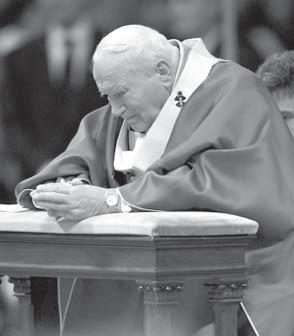
Those who feel “defeated by life” need the material help and spiritual consolation that only those who live in profound dialogue with Christ can give, says John Paul II.
The Pope gave this advice today when receiving the participants in the general chapter of the Congregation of St Elizabeth. Participants in the general chapter elected Mother Samuela Werbinska, 45, as their new general superior. “While cultivating an intense prayer life and listening to God,” the Pope explained in his address, “it will be easier for you to ensure not only material help but also spiritual consolation to your brothers and sisters in need.”
“To respond with creative fidelity to the challenges of modern society,” the Holy Father said, “we must start again from Christ and bear witness, in a simple and concrete way, to his merciful love for everyone, especially those on the margins of society, who are defeated by life.” -CNS
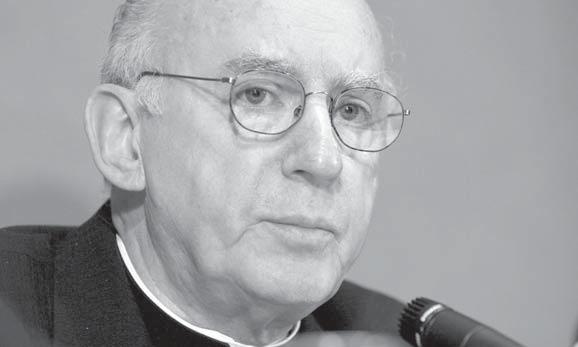
tor Dennis McGrath. “It’s up to people’s individual consciences. They are supposed to be in a state of grace.”
In early June and then again in a September column, Archbishop Harry J. Flynn of St Paul and Minneapolis said he did not believe “that it is my responsibility or anyone else’s responsibility to pass judgment on Catholics as they proceed to the Communion table.” The archbishop added the sacrament should be “a source of healing and unity and that it should not
be an occasion for political scrutinising and judgments.” Rainbow Sash leader Brian McNeill said his group was at the cathedral in response to a call by the national interfaith group Soulforce for local gay and lesbian groups to “take action” prior to the meeting of the US Conference of Catholic Bishops in Washington in midNovember.
McNeill said he hoped “to draw the bishops’ attention to the fact that the language used to describe homosexuals needs to be changed and to let the
bishops know that they need to reconsider their approach to sexual ethics in the Catholic Church.”
The Catholic Church teaches that homosexual acts are immoral because they are contrary to the natural law and exclude procreation. Homosexual people are called to chastity, according to the “Catechism of the Catholic Church.”
Specifically, McNeill said the group objects to the catechism’s use of the language “intrinsically disordered” to describe homosexual acts. But he stopped short of calling the group’s actions a proteSt
“This is not a protest,” he said. “This is a symbol of celebration of our gay sexuality, and we are just here as part of the community of faith, the people of God.”
While some bishops have denied Communion to group members, Archbishop Flynn has said that, because the Rainbow Sash group assured him in writing that their attendance at Mass is not a protest, he would not judge them unworthy to receive Communion. -CNS



Pope prays for peace in Iraq
Addressing Iraq’s new ambassador to the Vatican, John Paul II said that democracy is possible only in a state “ruled by law” and respectful of religious freedom. The Pope, when receiving the letters of credence of Albert Edward Ismail Yelda, expressed the hope that the nation’s forthcoming elections, planned for January, will be “fair and transparent.”
The ambassador of the Iraqi interim government had arrived in Rome in recent weeks to assist with the November 4 visit of Iraqi Prime Minister Ayad Allawi to the Pope. In his address delivered in English today to Baghdad’s new representative, John Paul II explained that “authentic democracy is possible only in a state ruled by law.” “Essential to this is the rule of law as an integral element of government. Preserving this fundamental principle is basic for any modern society that truly seeks to safeguard and promote the common good,” he said.
“In fulfilling this task, the clear distinction between the civil and religious spheres allows each of these to exercise its proper responsibilities effectively, with mutual respect and in complete freedom of conscience,” the Holy Father indicated. -Zenit
Evangelisation a top priority for Chinese Bishop
The new bishop of Zhanjiang said the evangelisation of city residents would be a top priority.
Bishop Paul Su Yongda, 49, was ordained the ordinary of Zhanjiang on November 9. More than 2,000 local Catholics, government officials and guests from Hong Kong, Macau and other parts of mainland China attended the ceremony.
Zhanjiang is in Guangdong, the Chinese province closest to Hong Kong and Macau.
Bishop Fang Xingyao of Linyi, in Shandong province, presided at the ordination; he was assisted by several other bishops. All these bishops are active in the government-recognized church, which publicly spurns ties with the Vatican.
around the world
Do not despair
Christians must not despair at their lack of unity, but must rejoice at how much closer they are to one another and must renew their commitment to continuing the ecumenical journey, Pope John Paul II said. “True ecumenism does not exist without interior conversion and the purification of memories, without a holiness of life in conformity with the Gospel and, especially, without intense and constant prayer,” the Pope said." Common prayer, joint efforts to help the poor and
New Chinese bishop lists evangelisation of city people as priority
Hong Kong church officials have said more than two-thirds of the government-recognized bishops have reconciled secretly with the Vatican.
Bishop Su chose as his episcopal motto “Put the boat out into deep water,” based on Luke 5:4. His coat of arms shows a boat sailing into open waters against a background of China’s Great Wall and high-rises, with a dove representing the Holy Spirit dangling an olive branch in the sky.
The newly ordained bishop said the church needed to expand in urban areas, “with hopes of attracting educated people and
a united witness to Christian values can show the world how much divided Christians actually have in common and will prepare the way for full unity, two cardinals also said. Cardinals Cormac Murphy-O’Connor of Westminster, England, and Ivan Dias of Mumbai, India, spoke on November 13 at a Vaticansponsored conference celebrating the 40th anniversary of the Second Vatican Council’s Decree on Ecumenism. “The iceberg of a divided Christianity,” he said, “will be more easily dissolved by allowing the Holy Spirit to warm up the relationships between the churches, than by strong strokes of arguments and discussions.”
thereby expanding the church.”
Bishop Su said he might need help from Catholics inside and beyond China to build and repair churches.
Meanwhile, nuns and lay Catholics in Zhanjiang said they are glad Bishop Su heads the diocese. They described him as “a very caring person.”
Local Catholics also spoke of Bishop Su’s good care of his predecessor, the late Bishop Joseph Chen Chu, after the bishop was left paralysed for five years after suffering a fourth stroke.
Bishop Chen, the first bishop of Zhanjiang, died March 19, 2003,
Hope in a song
Twenty years after the 1984 single “Do They Know It’s Christmas?” raised more than $14 million for famine relief in Ethiopia, the country remains one of the poorest places on earth.
As the ‘80s tune, sung by a legion of Britain’s top pop stars, was being re-released this fall, Ethiopia still was dealing with the cumulative effects of emigration, periodic drought and border conflicts. During the 1990s, Ethiopia’s war with Eritrea reportedly drained the country of $1 million per day - money many say could have been used to build schools and feed the hungry.
at age 81. His body was cremated and his ashes were buried in the cathedral.
Newly ordained Bishop Su entered the Central and Southern Theological and Philosophical Seminary, also called Wuchang Seminary, in Wuhan city in 1985. He was ordained a priest in 1991 and became cathedral parish pastor in 1997.
The bishop told visitors that his parents greatly influenced his vocation. “My parents prayed that I would become a priest, but they let me make my own decision,” a source quoted him as saying.
With about 30,000 Catholics, Zhanjiang Diocese has one elderly priest in his 90s plus four younger clerics, including Bishop Su, and about 20 nuns. -CNS
Cardinal elected
When the US Conference of Catholic Bishops elected Chicago’s Cardinal Francis George as vice president on November 15, it was the first time in 33 years that a cardinal has been selected as one of the conference’s two top officers. Cardinal George, 67, has been archbishop of Chicago since 1997 and a cardinal since 1998.
Every third year the bishops elect a new president and vice president from a slate of 10 nominees. Bishop William Skylstad of Spokane, Wash., vice president for the past three years, was easily elected president, winning 52 percent of the votes. - CNS
Archbishop Harry J. Flynn of St Paul Minneapolis. Photo:CNS
Page 13
Time with the One Who counts
I the Lord Am With You Always - Prayers and Meditations for Eucharistic Adoration
■ Reviewed by Brian A Peachey
This beautifully presented compilation of ancient and contempory prayers, meditations, reflections, poems and hymns will be an inestimable aid to those who participate in the growing practice of Eucharistic Adoration.
But it is not only for the exclusive use of those who are fortunate to be near a church
Polar Express
In recent years, many Christmasthemed movies have displayed a lamentable Scrooge-like cynicism toward the holiday. Thankfully, director Robert Zemeckis has taken a different track with “The Polar Express”, a visually captivating family fantasy about a young boy’s journey of self-discovery aboard a magical train bound for the North Pole.
Based on the beloved children’s novel of the same title by Chris Van Allsburg, the film is a Christmas present for the young and the young at heart; a beautifully told fairy tale whose heartwarming sentiment is as welcome as a mug of steaming hot chocolate on a cold winter’s day.
The film utilises a cutting-edge computer animation technique called “performance capture” that digitally translates the movements and facial expressions of live actors into pixilated characters, marrying them with the virtual world of the story. The imaginative end result looks somewhere between animation and live action. The process allows star Tom Hanks to play five separate roles in the movie.
The tale opens on Christmas Eve, with the story’s unnamed hero (a young boy “performed” by Tom Hanks, but voiced by Daryl Sabara) lying awake in his bed, awaiting the arrival of Santa, whose existence he has begun to doubt. Drifting off to sleep, he is roused by the loud rumblings of a steam locomotive pulling up to his snow-blanketed front yard. Rushing outside, he is met by the enchanted train’s conductor (performed and voiced by
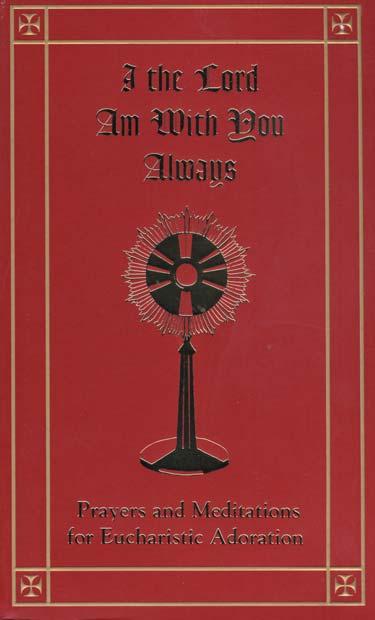
or chapel that has perpetual adoration of the Blessed Sacrament. It is indeed a prayer book for everyone, especially those who are
confined to bed or hospital. Despite its 300 pages, the compact size (11x18cm) enables it to be carried in purse or pocket. Open it anywhere and there is a treasure of great price. It is an ideal book to be placed in the back of Parish Churches for those who come to pay a visit. It comes highly recommended. Cardinal George Pell, who gave it an Imprimatur said that it “…is a wonderful collection of prayers and reflections on the reality of Our Lord in the Eucharist. I recommend it to prayerful people everywhere and my brother bishops.”
Archbishop Hickey in the Foreword wrote: “ This book will be a treasured resource … It contains a wealth of prayers, thoughts and meditations, all centred around the Real Presence of Jesus in the Blessed Sacrament”.
Monsignor Peter Elliott, Episcopal Vicar for Religious Education in the Archdiocese of Melbourne praised it; “This precious book is a treasury of Eucharistic devotion. All the richness of a tradition of prayer and living Eucharistic faith is made available from a remarkable range of sources… The scope of this book is itself a testimony to faith in Him and hope for our future.”
In the Introduction, Christine McCarthy, the Convenor of The Society for Eucharistic Adoration, and the compiler of the book says
that it “…is a collection of prayers ancient and modern for many occasions, prayers and thoughts to be slowly pondered. Where appropriate the beautiful language of the past has been preserved. The use of athe familial, reverential “Thee/Thy” form, reserved for God and His most holy Mother, has been retained where possible. As with poetry, and long-established, traditional hymns, the language ought not be manipulated merely for the sake of modernity.”
Recently, I was fortunate to meet Christine McCarthy in a time consuming queue at Los Angeles airport enroute to the Eucharistic Congress in Mexico. Later we travelled in the same party to Rome. It gave me the opportunity to congratulate her on a remarkable book.
For your copy of ‘Prayers and Meditations for Eucharistic Adoration’ call Kylie on 9227 7080 and order it NOW before Christmas for just $15.80 including postage.
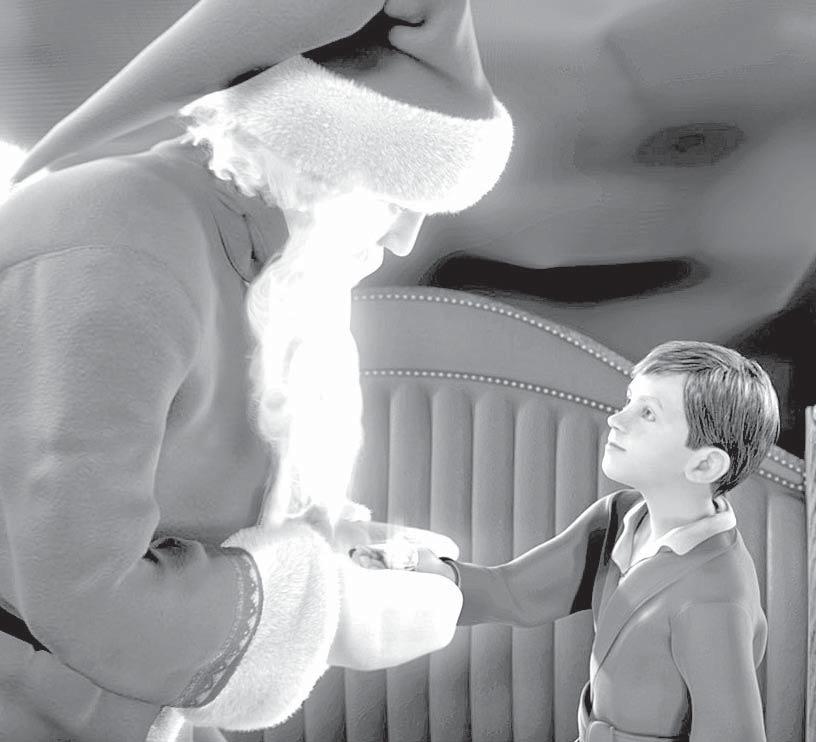
Hanks) who ushers him aboard, alerting him to a golden ticket in his bathrobe pocket stamped for passage to the North Pole.
Once on board he meets the other youthful passengers on the eponymous express, including a kind-hearted girl (voiced and performed by Nona Gaye), a nerdy know-it-all (voiced and performed by Eddie Deezen) and a friendless
boy (performed by Peter Scolari and voiced by Jimmy Bennett).
The bulk of the movie involves the voyage up to Santa land, highlighted by a show-stopping musical number of tap-dancing, back-flipping waiters serving up hot cocoa to the delighted youngsters, and a thrill-ride action sequence over a frozen lake. Along the way the boy also encounters a Tom Joad-like
hobo (Hanks) riding the rails, who has a guardian-angel knack for showing up at the right times. One sequence of a lost ticket’s flight through the wintry night borders on the balletic. The train eventually pulls into the station at the North Pole just in time for Santa’s annual send-off. But a mishap separates the three principal children from the rest of the rug-rats, trigger-
ing a mad scramble through the labyrinthine industrial areas and abandoned factories of Christmas village, before they find their way back to the town square, mobbed for Santa’s departure.
Old St Nick (once again, Hanks) is greeted like a rock star as he descends from his residence to his waiting sleigh. The main boy is selected to receive the ceremonial first present. The gift he chooses underlines the movie’s twin themes of childlike wonder and sorrow over its loss.
Tinged with menace, the film’s storybook images are, at once, both beautiful and haunting, evoking, by turns, Norman Rockwellesque nostalgia and the impressionistic otherworldliness of a childhood dream. Alan Silvestri’s score is appropriately wistful and incorporates echoey old yuletide recordings by Bing Crosby for added effect.
Since the source material is only 22 pages in length, the plot is rather bare-bones, though, in this case, narrative simplicity seems an advantage. Noticeable by their absence are any religious symbols or mentions of the spiritual significance of Christmas, especially given that the story involves rediscovering the “true meaning” of the holiday. However, while the movie remains outwardly secular, its underlying message is profoundly faith-friendly, as illustrated by the conductor’s counsel that “the most real things are the things you can’t see.”
On one level it can be interpreted as a parable about struggling to have faith in a world where “seeing is believing.”
For a holiday treat, jump aboard “The Polar Express.”
The USCCB Office for Film & Broadcasting classification is A-I -- general patronage.
review Page 14
2004, The Record
18 November
Published
The
Eucharistic Adoration Available
Compiled by Christine McCarthy
by
Society for
from The Record RRP: $15.80 inc postage
word and life
movie
Yes, I really do exist! Childlike innocence and wonder make this movie a delight. Photo: CNS
■ BRICK RE-POINTING
Phone Nigel 9242 2952
■ ELECTRICIAN
Power/light points from $50 each. Rewiring our speciality. 0418 941 286, 9279 5008.
Classified ads: $3.30 per line inc
■ PICASSO PAINTING
Top service. Phone 9345 0557, fax 9345 0505.
■ PERROTT PAINTING PTY LTD
For all your residential, commercial painting requ-irements. Phone Tom Perrott 9444 1200.
CHANGE YOUR LIFE FOREVER
is expanding and I need people to open new areas all over Australia. Training given. Highly lucrative. www.cyber-success-4u.org
NOVEMBER
19 Principals’ Thanksgiving Mass, CEO Chapel - Archbishop Hickey, Bishop Sproxton
21 Mass and Blessing of Fr Jim Foley’s Stained Glass Window at Carlisle Parish - Archbishop Hickey Get-together for participants of
SUNDAY NOVEMBER 21
GATE OF HEAVEN
Please join us this Sunday at 7.30pm on 107.9 FM, Radio Fremantle, for more Global Catholic Radio. This week we will feature: (1) Hail Holy Queen; Queen Mother of The King of Israel with Dr Scott Hahn. (2) Mysteries of the Rosary; The Presentation of Jesus with Fr Jaques Daley. (3) Our Lady in Scripture and Tradition; Mary Ever Virgin with Fr Andrew Apostoli. Donations toward the program may be sent to Gate of Heaven, PO Box 845, Claremont, WA 6910.
Sunday November 21
ETERNAL WORD TELEVISION
NETWORK 1 - 2 pm on Access 31. The Gospel of John/Scripture scholar, Tim Gray, discusses his new Bible study series with Fr Mitch Pacwa (EWTN Live Series). If you are unable to watch EWTN on Access 31, it is a good idea to record it to view later. We also have a wide range of wonderful video tapes to revitalise your Faith, and to share with others. Enq: 9330 1170. Please send donations to keep programs on air to Rosary Christian Tutorial Association, PO Box 1270, Booragoon 6954.
Sunday November 21
TAIZE MEDITATIVE PRAYER
7- 8pm. Come and join in the prayer using the Taize chants in a candle lit chapel. Time for silent prayer, bring along your torch. Sisters of St Joseph Chapel 16 York St South Perth. Enq: Sister Maree 9457 3371.
Thursday November 25
ATTENTION LITURGISTS
The WA Branch of the Australian Association for Religious Education is hosting two seminars for Enhance – a collection of lectionary based multimedia for worship. Richard Morley will demonstrate Enhance and provide a workshop on getting the most from it. 45.30pm St Mary’s Anglican Girls School.
Friday November 26, 9.30 – 11am St David’s Anglican Church, Ardross. Enq: Ted Witham 9337 7045 or 0438 991 114, Chris Callus 0431 941 961.
24 hour Hotline: 9227 7778 Deadline: 5pm Tuesday
■ ALL AREAS Mike Murphy 0416 226 434.
■ THE HUMBLE MESSENGER
9225 7199. Shop 16/80 Barrack St (inside Bon Marche arcade), Perth.
MUMS ON A MISSION
■ SUCEED FROM HOME Call Christine on Tel: 9256 2895
the Pilgrimage to the Eucharistic Congress - Archbishop Hickey Choral Festival Mass, St Mary’s Cathedral - Archbishop Hickey
21-26 Australian Catholic Bishops’ Conference, Sydney - Archbishop Hickey, Bishop Sproxton
24 Catholic Women’s League meeting - Fr Brian O’Loughlin VG
Friday November 26
BUSINESS PERSONS MASS
Will be celebrated at All Saints Chapel, Allendale Square, Perth at 7am followed by a Breakfast Meeting at the WA Club, 101 St Georges Tce, Perth.
Guest speaker: Sr Eugene Brennan from St John of God Healthcare. Enq: 9384 0809.
Saturday November 27
NOVENA TO OUR LADY OF VAILANKANNI
Last Saturday of every month, Holy Trinity Church, Embleton, 5pm followed by Vigil Mass at 6pm. Enq: George 9272 1379, Santina 9272 4180.
Saturday November 27
ANNUAL FUNDRAISING DINNER DANCE
The Respect Life Office invites you to its first Annual Fundraising Dinner Dance commencing at 6.30pm at Rossetti Restaurant, 28/386 Wanneroo Rd Westminster (Cnr Amelia St).
Archbishop B J Hickey and David Harp (Flame Ministries International) will be the guest speakers for the evening. Tickets include a 3 course meal, beer, wine & soft drinks. Dress is formal. Tables of 10. Tickets can be purchased from the Respect Life Office, 45 Wellington Rd, Morley Ph: 9375 2029 email RepectLife@perthcatholic.org.au
Sunday November 28
CHRISTMAS ADVENT PILGRIMAGE
Come join us in prayerful preparation for Christmas. Prepare your heart and home with blessings at Christmas. Come with your family and make it a family day with Mary’s Companion Wayfarers of Jesus the Way at the Schoenstatt Shrine in Armadale Hills. 11.45am Assemble at Armadale Train Station (Arrive by train or drive and utilise the train station parking); 12pm Angelus; 12.05pm Rosary Walk to Schoenstatt Shrine; 12.30pm Pilgrimage Program with Holy Mass and BYO Lunch. 3pm Divine Mercy, Benediction and Rosary Walk to the Train Station. Experience first hand pilgrimage spirituality with its longstanding Christian tradition. Sister Lisette 9399 2349, or All Saints Chapel 9325 2009.
Sunday November 28
VOLUNTEERS
■ URGENT
Pregnancy Assistance requires volunteer drivers to pick up baby goods within their local areas. Ph: 9328 2929
25 All Hallows’ Church Farewell Mass, Inglewood - Bishop Quinn
26 Ordinations to Priesthood, 7 pm, St Mary’s Cathedral - Archbishop Hickey, Bishop Sproxton
27 Address at Respect Life Dinner/ Dance, Balcatta - Archbishop Hickey
End-of-Year Dinner for Candidates
BULLSBROOK SHRINE PILGRIMAGE
The next monthly pilgrimage in honour of the Virgin of the Revelation, will be held at the Shrine of Virgin of the Revelation, 36 Chittering Rd, Bullsbrook on the last Sunday of the month, at 2pm. The pilgrimage includes Rosary, Pilgrimage Mass at 2.30pm, procession to the Shrine, Benediction of the Blessed Sacrament and the blessing of the sick. All are most welcome. Reconciliation is from 1.30pm prior to the Pilgrimage Mass celebrated at the Shrine every Sunday at 2.30pm. Bus transport for the Pilgrimage departs Barrack St at 12.30 for Bullsbrook via Highgate, Guildford and Midland. For bookings: Tel. 0409 296 810 or 9277 5378 Enq: SACRI 9447 3292.
Sunday November 28
ASK FOR AFRICA
Auction/Bring & Buy Sale/Sausage
Sizzle 12.30pm, viewing from 9am, at Our Lady of the Mission Parish Hall, 270 Camberwarra Drive, Craigie in aid of 14 million starving Ethiopians. Please come spend on some bargains! Enq: Sheila 9309 5071 or email: askforafrica@optusnet.com.au
Sunday November 28
THANKSGIVING MASS
After 58 years of service to Our Lady Of Lourdes Parish Rockingham, Star of the Sea Primary School and local state schools the Sisters of the Our lady of Missions Order are leaving the parish. A thanksgiving mass will be held at 9:30 am at the Rockingham Church Townsend Rd. Morning tea will be held in the Parish Hall/Star of the Sea under croft. All past and present parishioners, students and teachers are welcome to attend. Please bring a plate.
Sunday November 28
NINETIETH ANNIVERSARY
Former Priests, Parishioners and Friends of St Kieran’s Parish, Osborne Park are cordially invited to the Blessing and Official Re-Opening of the extensively refurbished Parish Centre on the Ninetieth Anniversary of its Building. The
Due to the large number of contributions to the Panorama section it is important to get your items in as soon as possible.
Email: administration@therecord. com.au
or phone: KYLIE 9227 7080.
Deadline: Tuesday 12 noon
for Permanent Diaconate, Catholic Pastoral Centre - Archbishop Hickey, Bishop Sproxton
28 Centenary Mass of Cottesloe Parish Archbishop Hickey
30 Parents and Friends Federation Mass ending 50th Anniversary Year, Highgate - Archbishop Hickey
Celebration will be held after the 8.30am Family Mass, followed by Morning Tea.
Principal Celebrant: Bishop Donald Sproxton. All welcome! Enq: Fr Gatt on 9444 1334
Tuesday November 30
MMP DAY OF REFLECTION
St Bernadette’s Church, Jugan St Glendalough commences 10.30am with Rosary followed by Holy Mass and talks. Concluding 2pm. Celebrant and Speaker Rev Fr Timothy Deeter. All invited for our final Day of Reflection for 2004. Please bring a plate to share.
Friday December 3
PRO-LIFE PROCESSION – MIDLAND
The First Friday Mass, procession and rosary vigil will commence at 9.30am with Mass celebrated at St Brigid’s Church Midland. The Franciscan Friars of the Immaculate will lead us. All are invited to witness for the sanctity of life and pray for the conversion of hearts. Enq: Helen 9402 0349.
Saturday December 4
DAY WITH MARY
Sts John & Paul Church Cnr Pinetree Gully Rd & Wainwright Close, Willetton 9am–5pm. A video on Fatima will be shown at 9am. A day of prayer and instruction based upon the messages of Fatima. Includes Sacrament of Penance, Holy Mass, Eucharistic Adoration, Sermons, Rosaries, Procession of the Blessed Sacrament and Stations of the Cross. Please BYO. Enq: Franciscan Friars of the Immaculate 9384 3311.
Saturday December 4
WITNESS FOR LIFE PROCESSION
Archbishop Barry Hickey will lead the next First Saturday Mass, procession and rosary vigil commencing with Mass at 8.30am at St Anne’s Church, Hehir St, Belmont. We proceed prayerfully to the Rivervale Abortion Centre and conclude with rosary. Please join us to pray peacefully for the conversion of hearts. Enq: Helen 9402 0349.
Sunday December 12
CELEBRATING THE GOSPEL OF LIFE
Honouring Our Lady of Guadalupe, Patroness of the unborn, Feast Day. 4pm Holy Hour 5pm Procession and Holy Mass. All Saints Chapel 77 Allendale Square, Perth. Supporting organizations are Right to Life, Legion of Mary, Marian Movement, Santo Padre Pio Prayer Group, Mary’s Companion Wayfarers of Jesus the Way, and the Knights of the Southern Cross. Come and join in! Bring a plate.
Monday February 21 – 25
PARISH MISSIONS & WEEKEND/ DAY RETREAT
A focus on prayer/meditation, and its part in building faith and community. Mission and Retreat Director will be Fr Justin Belitz OFM. Mission Venues: Bunbury, St Patrick’s Cathedral Parish. February 21-25. Contact: Dick 9721 4651. Morley Infant Jesus Parish, March 6-10. Contact: 9276 8500. Armadale St Francis Xavier Parish March 16, Contact 9399 2143. Weekend/Day Retreat: The Power of the Inner Voice, Peace be Still, Chittering March 18-20. Day retreat March19. Contact: Wendy 9571 8108.
CROSS ROADS COMMUNITY
Healing Masses: 1st Monday of month 7pm Church of East Fremantle, 2nd Monday of month 10am St Jerome’s Munster. Term 4 – 18th October to 17th December for: Family & Friends Support Groups of Substance Abusers on Wednesdays 7 – 9pm, Substance Abusers Support Groups on Tuesdays 5.30 – 7.30pm & Friday's All day Group for Substance Abusers on Fridays 9.30am – 2pm, Bible Night: Tuesdays 7 – 9pm & Healing Mass: Fridays 12.15pm.
COURAGE
Group for men and women with samesex attraction who wish to live in accordance with Jesus’ teachings on sexuality and relationships. Enq: Natalie 9242 4066
■ RICH HARVEST Bibles, Books, CD’s, Cards, gifts, Statues, Baptism & Communion Apparel, Albs, Vestments and much more. 39 Hulme Court, Myaree, 9329 9889 after 10.30am. PANORAMA a roundup of events in the archdiocese ■ BOOKKEEPING Service for churches, not for profits and small business. Contact Bruce Lord on 0412 287 022 or lordsbooks@optusnet. com.au classifieds ADVERTISEMENTS BUILDING TRADES FURNITURE REMOVAL HOLIDAY ACCOMMODATION BOOKKEEPING RELIGIOUS PRODUCTS OFFICIAL DIARY Page 15 18 NOVEMBER, 2004, The Record
GUTTERS/DOWNPIPES Need renewing, best work and cheapest prices. Free quote. Ph: Ad 9447 7475 or 0408 955 991 5008. ■ DUNSBOROUGH New 4 x 2, great location, sleeps 9. Ph: 0414 579 215. ■ DENMARK Beautiful 3brm, 2bth, cott, fully equip, special rates. Ph: 0412 083 377 BUILDING TRADES
WORK FROM HOME
your children & family commitments. My business
■
■
Around
GST
Great Books for Christmas!
Available NOW
Open Embrace
A Protestant couple rethinks contraception
By Sam and Bethany Torode
■ softcover ■ 126 page $20.00 inc postage
SAM AND BETHANY TORODE are freelance writers and graphic designers who live in rural Wisconsin with their son Gideon. Their essays have appeared in Christianity Today, Books & Culture, Boundless webzine, The American Enterprise, and Touchstone.
“The idealism of a young Christian couple here blends with wisdom from the Bible and the Christian past to challenge conventional views on contraception.
Sweetly written and solidly argued, this is a head-clearing and heart-warming read.”
JI Packer Author of Knowing God
Nightmare of the Prophet
By Paul Gray
■ softcover ■ 181 page $28.20 inc postage
PAUL GRAY is a languages and philosophy graduate from Monash University who worked for 11 years as an editor and writer for BA Santamaria’s National Civic Council. Today he is a featured columnist on political and international affairs for Australia’s biggest-selling daily, the Herald Sun. He also presents the weekly current affairs and interview program Gray Matter which is broadcast around Australia and writes regularly for The Record
“Today the world is primed for a re-run of the 20th century’s worst violence. Yet despite all our fear of terrorism, it is a prospect for which the world is almost completely unprepared.”
The Nightmare of The Prophet is a warning to the Western world.
As Communism did between 1917 and 1989, ‘Islamist’ terrorism may yet
KNEEL WITH THE POPE IN PRAYER
NOVEMBER
General: That Christian men and women aware of their vocation in the Church may answer generously to God’s call to strive for holiness of life.
Missionary: That all those who work in the missions will never forget that personal holiness and intimate union with Christ are the source of the efficacy of evangelisation.
Year of the Eucharist
Today my soul is greater than the entire world, because it possesses You, Lord, Whom heaven and earth cannot contain.
– St Margaret of Cortona
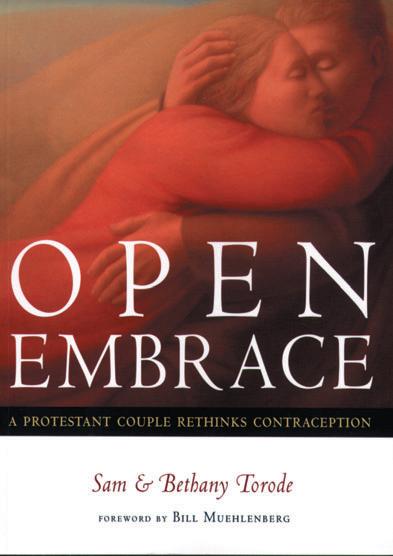
I the Lord Am With You Always
Prayers and Meditations for Eucharistic
Adoration
See review: Page 14 of this week’s Record
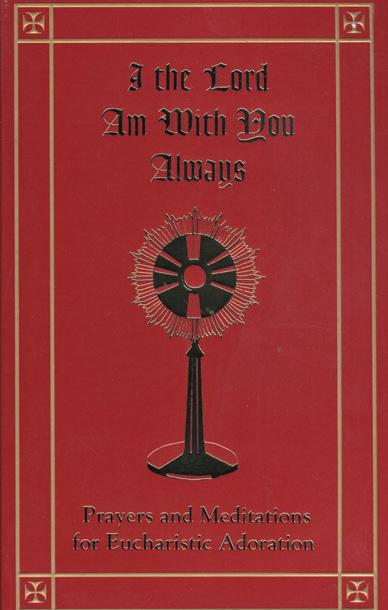
“In this clear and well-written book, the Torodes present a winsome case for the integrity and sweetness of sex au naturel.”
Frederica Mathewes-Green
Author of The Illumined Heart
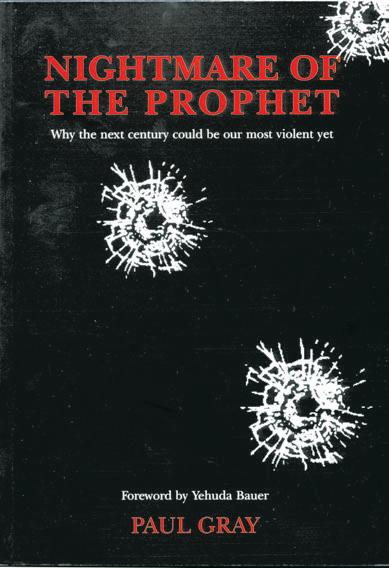
divide the world into two huge warring blocs.
Presenting a synthesis of insights from some of the world’s leading minds, Paul Gray addresses the vital lessons from the world’s experience of past totalitarianism, to expose the real challenge of terrorism today.
The problem is not religion, but that we have forgotten history.
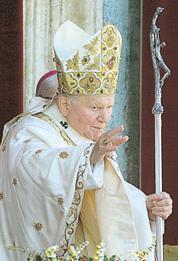
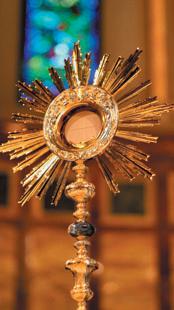
Arise from darkness
What to do when life doesn't make sense
By Benedict Groeschel CFR
■ softcover
$28.20
inc postage
"Fr Groeschel offers rich wisdom ... and a great deal for us all to learn. He superbly teaches us how to pray in times of trouble. A book to be thankful for".
J I Packer
Author of Knowing God
Real Love
On dating, marriage and the real meaning of sex
By Mary Beth Bonacci
■ softcover $28.20 inc postage
MARY BETH BONACCI speaks to nearly 100,000 people every year. She speaks to Catholics across the country and around the worldabout friendship, about relationships, about marriage, about God’s plan for sexuality, and about finding real, honest love.
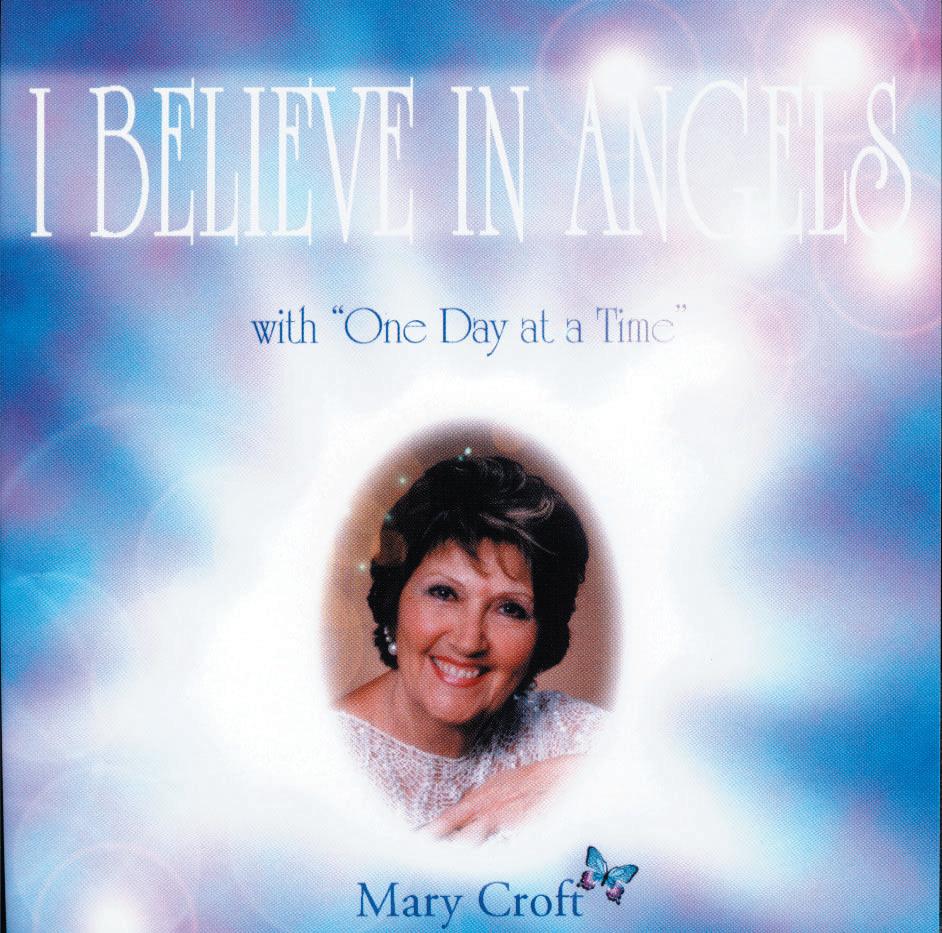
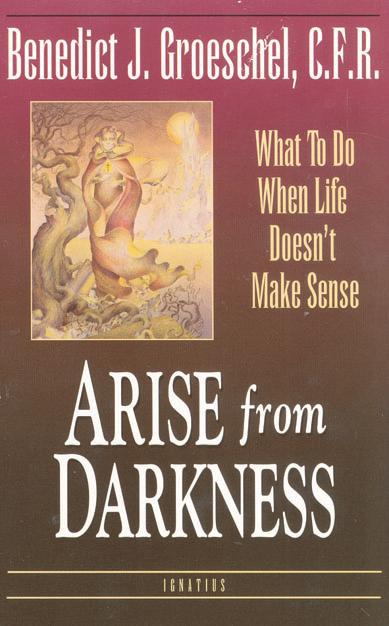
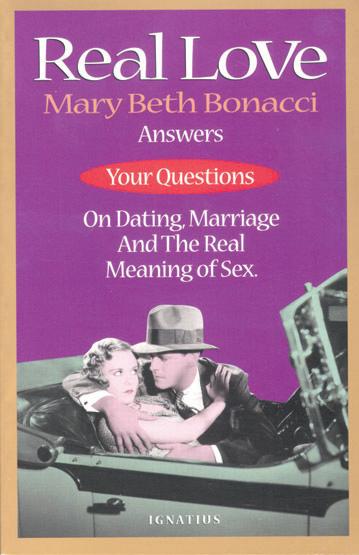
We have been blessed for over 20 years to have Mary Croft as a parishioner here at Our Lady of Grace North Beach, sharing her special gift of a beautiful voice regularly with the parish community at the 9.30am mass on a Sunday.
Singing with purity that you cannot help but listen, but most importantly it helps you to pray.
Mary demonstrates her own great love of God not only with her beautiful voice, but also with her special warmth and passion.
This she also shares with us through her involvement and participation with other parish activities.
Encouraging all she meets to be assured of God’s great love for us all.
Mary continually spreads her spirituality and love of God through her very personality.
Her two CD’s One Day at a Time and now her new CD I believe in Angels provide great comfort and inspiration to many here at North Beach.
I BELIEVE IN ANGELS is available from The Record for $19.95 including postage. Contact Kylie on 9227 7080 to receive your copy of this remarkable CD by Mary Croft in time for Christmas.
Page 16 18 November 2004, The Record








 Linda Watson
Linda Watson













 ■ By Glynnis Grainger
■ By Glynnis Grainger














 ■ By Paul Gray
■ By Paul Gray

 Fearful of disembodiment? Cameron Diaz.
Lucas Hurley from the Catholic Youth Ministry carries his cross towards Gingin.
Fearful of disembodiment? Cameron Diaz.
Lucas Hurley from the Catholic Youth Ministry carries his cross towards Gingin.














